Water Margin
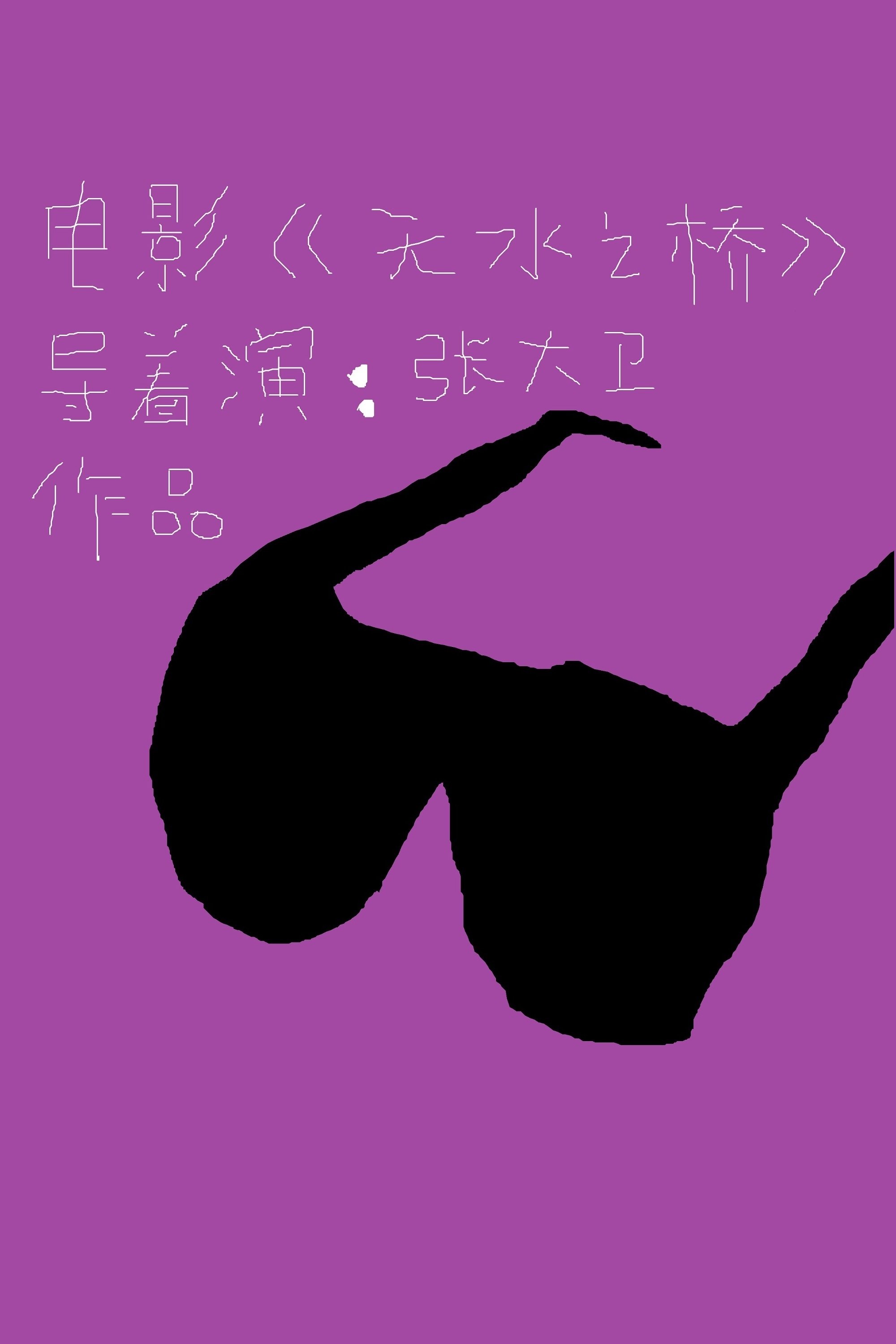
Reviews
shadowartisttxl
Dawei Zhang: "Recovery of the ordinary." In 1981, French philosopher, Jean Baudrillard, published his treatise on signs, symbols and reality: Simulacra and Simulation. In his work, he speaks of a dis-order of the post-modernity situated in societies of late capitalism, wherein the signs and symbols constructing the shared reality of a given society precede and eventually do away with the original objects and people which they seek to represent. This form of society causes the distinction that previously divided reality and its signifiers to vanish, and heightening the absurdity of the individuals relation to the Real, or even, towards ones own works (or even the self,) to a point wherein there is little hope for meaning in any shape or form. Thus, Baudrillard instructs us, following the work of Jorge Luis Borges, that this given society makes such use of the signs and symbols it uses, that the 'maps' of reality themselves replace the Real we sought to navigate by way of these particular details. In this 'reality,' individuals labor is re-oritented towards establishing and securing a place in the representation itself, and as they devote themselves to this representation, the Real itself gets one step further towards complete annihilation. It is with this in mind that one enters Dawei Zhang's directorial debut: Water Margin, which is itself a mournful meditation on this very cultural logic in contemporary China and simultaneously the passion which drives the film is that very refusal to let the hope of undoing this paradigm die. This film is standing on the shoulders of giants, for those films from which it seems influenced, as well as those few films who fit within the same intersection of micro-categories are nothing short of strokes of incredible genius unto themselves. The films which are most strikingly related towards Water Margin are Liu Jiayin's Oxhide and Tsai Ming-Liang's Walker series. In Oxhide for example, we find a portrait of the director's desperate family life confined within a small claustrophobic apartment extrapolated to a universalized stand in for a great majority of Chinese citizens who 'feel' her pain. In Water Margin, Zhang similarly uses his close understanding of those around him and a similar sympathetic perspective to film the absurdity of life inverted within the public arena, while Oxhide neglects access to this anxiety, save represented in the family members returning home, Water Margin picks up the torch and establishes the exteriority only hinted at – in Zhang's representation there is no familial release, instead it's characters are stuck in this cycle as lonely and isolated figures wandering through the nightmarish landscape ablaze with neon signs and eyes affixed to the floor. Like Lio Jiayin, filmmaker Dawei Zhang inserts himself as a character within his own film, and in somewhat of an abstracted visual synecdoche, one finds him seated on the concrete with bag of groceries: among the few wholly striking icons in the film – an icon that harkens to the Walker series, wherein a Buddhist monk slowly engages in walking meditation amongst the cityscape around him – the contrast revealing their radical disconnected approach to living, which alienates and exploits the needs and wants of those around him. In the Walker series, the figure of the monk maintains a hopeful parallel to the film itself – as long as the film persists, and engages an audience who are willing to slow down and engage the world around them in this manner, hope persists as that which is quietly rebellious – a resistance to become subsumed in the reproduction of a hegemony which maintains no part of the soul of those it governs. In Water Margin however Zhang's character represents a further radicalization of this icon – no longer is he a man of the cloth, denying the world around him, but a man clothed in the garb of the world that sought to consume him. It is an image of the diasporic within his own nation – a radical alienation that, while being in the world, is yet at the same time, far from being at home within it. This scene is the visual representation of the portion of the penultimate German Idealist, G. W. F. Hegel's Phenomenology of Spirit, which J. M. Bernstein described as "...the discovery of the disappointment in knowing. Now in knowing, we do not get all the things we hoped we might get,” and that in this type of lived experience, ones own questioning, as represented within the notion of philosophy to Berstein is “....intrinsically disappointment; and to discover that is also so that what philosophy can not do, and what often has been hoped for from philosophy, is that it should offer us a transcendental security: that we are at home in the world. Nothing. Nothing can make us at home in the world. That's what people wanted from philosophy, and that was the mistake that drove philosophy forever to be a series of hyperboles, rather than what philosophy must be: the recovery of the ordinary." This is, in part, an intellectualization of the very visual notion which haunts every scene of this film – there is a desperate longing for 'the ordinary' or 'the practically lived life' which seems in part what Baudrillard suggested to have disappeared with the Real once replaced by its signifiers. Thus, during this very selfsame scene, this notion is expressed effortlessly through a song which begins to play where we find the lyrics “when I turn my head to look back, many years have passed by.” By this, we come to understand that this knowing is that which sees China as it has become, and with the knowledge of where this 'becoming' has come from – we understand at this moment that awful things have occurred, and yet, it seems that no one acknowledges this, perhaps so radically consumed by the fight to be represented within the artificial that they aren't even aware what has slipped through their fingers. Despite all of the hope that comes along with having grasped and presented this notion, there is still a helplessness permeating the film, which speaks to the ways in which we as audience members, who find ourselves represented in the critique Zhang is laying out, reduced to inactivity, archetypically represented within his character. This is shown to us once again during a scene in which he finds that his relationship to the natural world is reduced to its occupancy within a plastic bag (the penultimate icon of pointless and wasteful capitalism run amok) to later consume it. His groceries (nature) are found in this scene to be his only companion, as he sits on the concrete amidst the disorienting environment of the artificial. The camera pans from here, and in so doing it turns to Zhang who is singing it at a karaoke bar singing along with a look on his face actualizing in raw emotion what was just intellectually understood in the preceding scene. Directly following this scene, we find the colors of the film inverted as a jazz musician is preforming in the middle of a traditional looking pavilion where he screams out into the void, and is holding onto this hope, and yet this music isn't traditional Chinese music. From this contrast, of nature and the history of China so iconographically packaged, we find that not all hope is of the kind driving this film - there seems indeed to be a hope which is of the wrong sort - this is the hope of art and beauty without a true understanding - this is the hope of beauty torn asunder by the radically divided and absurd nature of the society the artist finds himself in - the artist has lost the drives guiding his hope, and now it remains a hope of desperation alone. The notion of a desperation driving the artists of the world (those who set up concrete determinations which guide our understanding of the map itself) is brought up again when we see the krautrock band, Faust, preforming music on stage into a concrete mixer - it's a direct representation of a tool of labor, a tool used to generate capital advantage for he who owns its worker, eating and mixing the music being preformed into it. The film makes this obvious as we cut from the band to a worker utilizing the tool with its original design in mind. This set of images draws ones mind to the differentiation taking place in each person's approach to the tool as it is in-itself. Following Heidegger, we find that the man working with the concrete mixer is thus in a unified state of being, where his labor is directly linked with the work of the mixer itself – there is no isolation of the object as being independent from the work with which he approaches it – his work is not automatic, but is authentically being in-and-for-himself. On the contrary, the performance of Faust is itself drawing one to reflect upon the object, as it has now been removed from the laborer's phenomenal world, and as such it causes us to maintain a conscious recognition of the object, and those interacting with it on stage as situated in the fundamentally broken understanding of themselves as subjects over and against it. We understand then that these figures are themselves one through which the argumentation of the film manifests itself yet again. It's a confused state of being altogether, and thus one which situates those on stage in an absurd condition of lived reality – their phenomenological situatedness is such that they have been pulled outside of the experience of circumspection, and as such into a conditioned state of being which itself causes a loss of intelligibility, and therefore a state wherein one no longer is at home in the world. Thus, where music previously stood as the spirit of hope and teller of truth, the soul of the music is now consumed and re-produced by the swirling of the mixer, and yet surely this music is now too stripped of what guided it in the first place, and what is generated in its stead is stale, mechanical ambiance of what once was: in this there is just enough to entice those who loved the art of their people before, and yet now simply guides them towards the objects from which their labor may be extracted. Hence, what we find re-presented as aesthetic is the disconnected logic which remains as the spectre of Mao in current Chinese culture: the madness of re-creating a society that has appropriated its own culture to serve solipsistic ends - and when there exist individuals who fit not this solipsism, they are displaced and alienated within the culture of their own people. The ancestral lineage which founded many traditions of spiritual life have now been inverted - the spirits of those whose labor bore the fruit of the culture have been banished, and in their stead only labor may continue to persist as the 'heart' of the Chinese. This self same inversion can be seen and felt again near the end of the film where we find this central thesis repeated. The scene is one where we find people swimming in a pool, which is contrasted to an earlier moment where we learn that the natural bodies of water found within the towns themselves have become toxic to those who live there - we hear a citizen warn against swimming in these natural areas, for we are told “people can die while swimming here” - color here shifts from black and white to inverted color – the atmospheric noise of the real world shift again to an artificial dark ambient noise – the warmth shown in the image mask the fact that there is still darkness that isn't being addressed; and where there is darkness itself, there should be warmth, yet it cannot be accessed for a variety of reasons that the film just spent the entirety of its duration laying out. As we transition towards the tail end of the film, these are the thoughts on our minds as we see from a first person point of view the image of one driving forward on the moped while a song plays whose lyrics state: “there's a bridge where people cross and they never return” and thus we understand that we are speaking of the past, and yet thus the image contrasting this song seeks to show the emptiness found in the new society of china which is ever re-producing itself in a never-ending 'progression.' We then abruptly cut. We find ourselves newly situated in an environment unlike anything else found in the film. The tension that the entire film has been forcing upon us suddenly is nowhere to be found. It's as if the entirety of the film has taken place in the actuality of the harsh world, only to find ourselves now in a dream; in heaven; removed from the crushing weight of the film entirely. The imagery is one of seemingly abandoned buildings - time is itself manifest on their walls. We see a wretched looking dog with a chain around its neck, being walked down an alley way, when out of one of the buildings Zhang himself emerges, taking the dogs chain in hand, now adorned with sunglasses, and in communion with his fellow man and with nature symbolized by the dog itself. This newly re-presented Zhang draws the title of the film to reflection in a quick scramble to understand the radical shift in all we had seen prior. Up to this point the title, Water Margin (which is itself the title of one of the Four Classic Chinese Novels,) seemed to be a far cry from what is illustrated throughout the rest of the film; and yet, one of the elements which distinguishes Water Margin from the other Three Classic Chinese Novels is its attention to those not within the ruling class itself, nor mythologizing heroes as outside of the class system altogether. Here in fact Zhang 'wears the uniform' of the working class - the constructed reality around him up to this point is the world which has been re-made to suit the interests of the ruling class, and Zhang, obviously not of this ilk, has instead found himself suffering at the hands of a totalizing corruption, wherein not only does the Real dissipate from the environment available to the working class, but indeed even that which is constructed (think of the pool) is that which exists without access to one another authentically, and instead only maintains a relation by way of the narrative imbued in the constructs themselves. Yet, when we find Zhang in this new environment, we find him no longer alone - it's not a construct of the mind where he has found freedom solely for himself, but instead it is the water to which the entirety of the film seeks to lead others to drink from. This leads one to see that Zhang is perhaps within the brotherhood of the Hao Han (the bandit heroes of Water Margin, who seek to right the wrongs of the ruling class, and set forth a pathway to freedom for those subject to this tyranny;) a fugitive finding solace only within authentic being itself as that which is totally reflected outside of the possibility of life as exists within China at present. Thus, in the final scene we find that not only has the world shifted outside of the phantasmagorical simulation occupying China altogether towards a being as presented in-and-for-itself, but so too has Zhang shifted from a character, to a hybrid presentation of himself as director/actor/Hao Han - the film itself and his action therewithin are his fulfillment of not a moral commandment, but the only moral commandment available to a bandit such as himself within late capitalism. Thus, as the camera cuts with Zhang walking out of the set built by broken down windows, which resemble prison bars, we are confronted with the idea of authentic life still surrounded by the prison of the past within the present. We also notice this through the fact that the color itself is different from that which we have seen before - it is a subtle color which paints this metaphysical reality, no longer the wacky colors of the 'metropolitan' life, nor the black and white or inverted colors found previously, but the full and rich color of the Real. We almost feel the cry of one of the quintessential characters of Water Margin, Song Jiang who, harmed by the injustice extracted against him, refuses to respond in kind by exemplifying such misconduct in his life against the ruling class, and the world which betrayed him, but instead took his own life stating: "The court may wrong me, but I will never wrong the court!" and instead choosing the legacy within the minds and tales of those he fought for. In this way, Zhang is removed from the world in a symbolic suicide that asks for others to come to the Water so that they too may drink of righteousness and virtue, and as such, Zhang himself may indeed be found situated amongst the other members of the thirty-six heavenly stars and indeed as a true representation of China as it should be, not in a moralizing sense, but instead as a pure "recovery of the ordinary."
Movie Recommendation
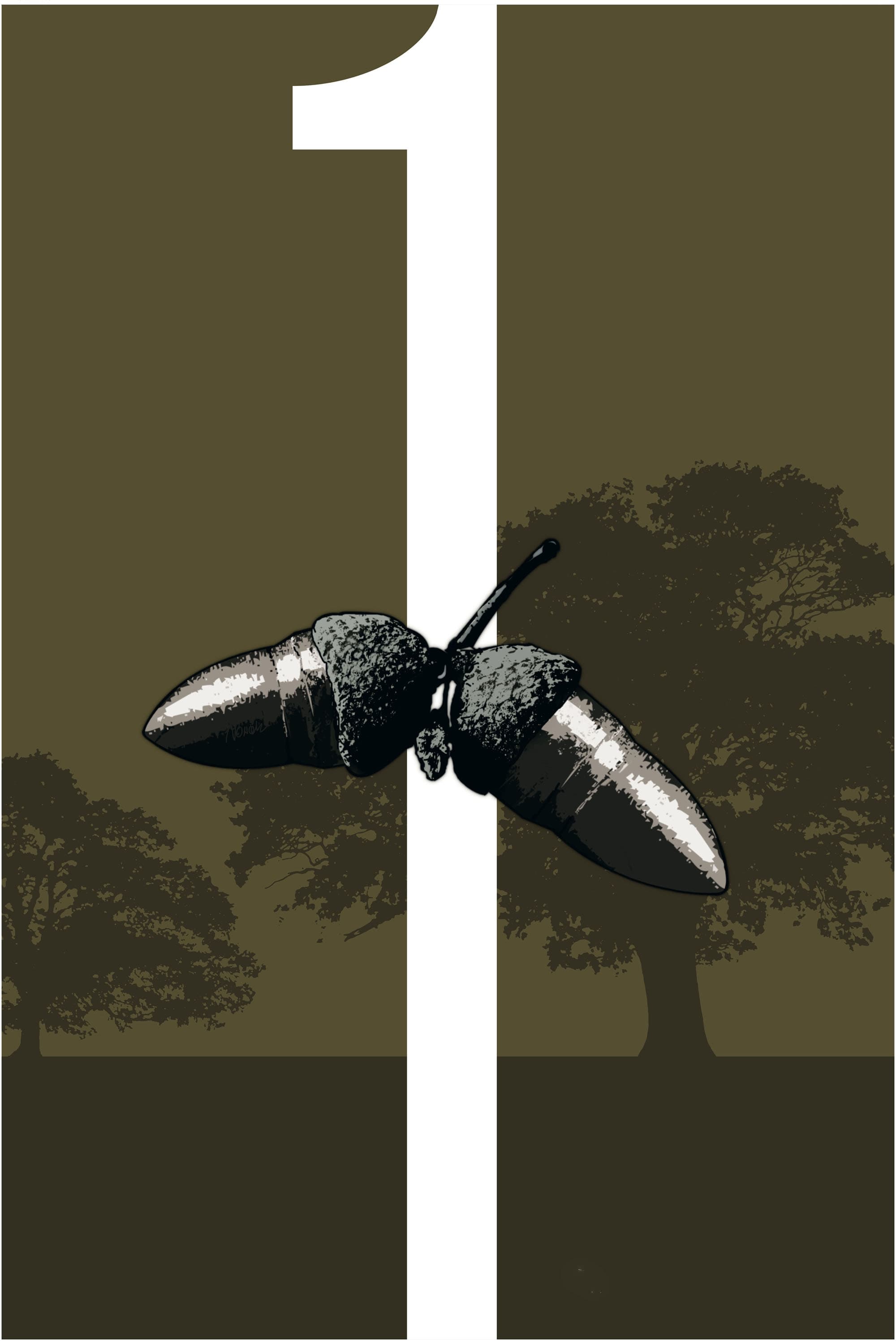 12020-09-14Early morning silence is broken by screeching tires as a helicopter bears down on a speeding vehicle. Taking a quick corner, the team tumbles out into the woods as their car pulls away. Now they must make their way through the thick of nature and thick gunfire to accomplish their mission. Not a single word of dialogue is spoken throughout the entire film. Instead, the music, sounds, images and deeply truthful acting turn a simple plot into an intense experience. Passion and intrigue keep building to the very end.More...
12020-09-14Early morning silence is broken by screeching tires as a helicopter bears down on a speeding vehicle. Taking a quick corner, the team tumbles out into the woods as their car pulls away. Now they must make their way through the thick of nature and thick gunfire to accomplish their mission. Not a single word of dialogue is spoken throughout the entire film. Instead, the music, sounds, images and deeply truthful acting turn a simple plot into an intense experience. Passion and intrigue keep building to the very end.More...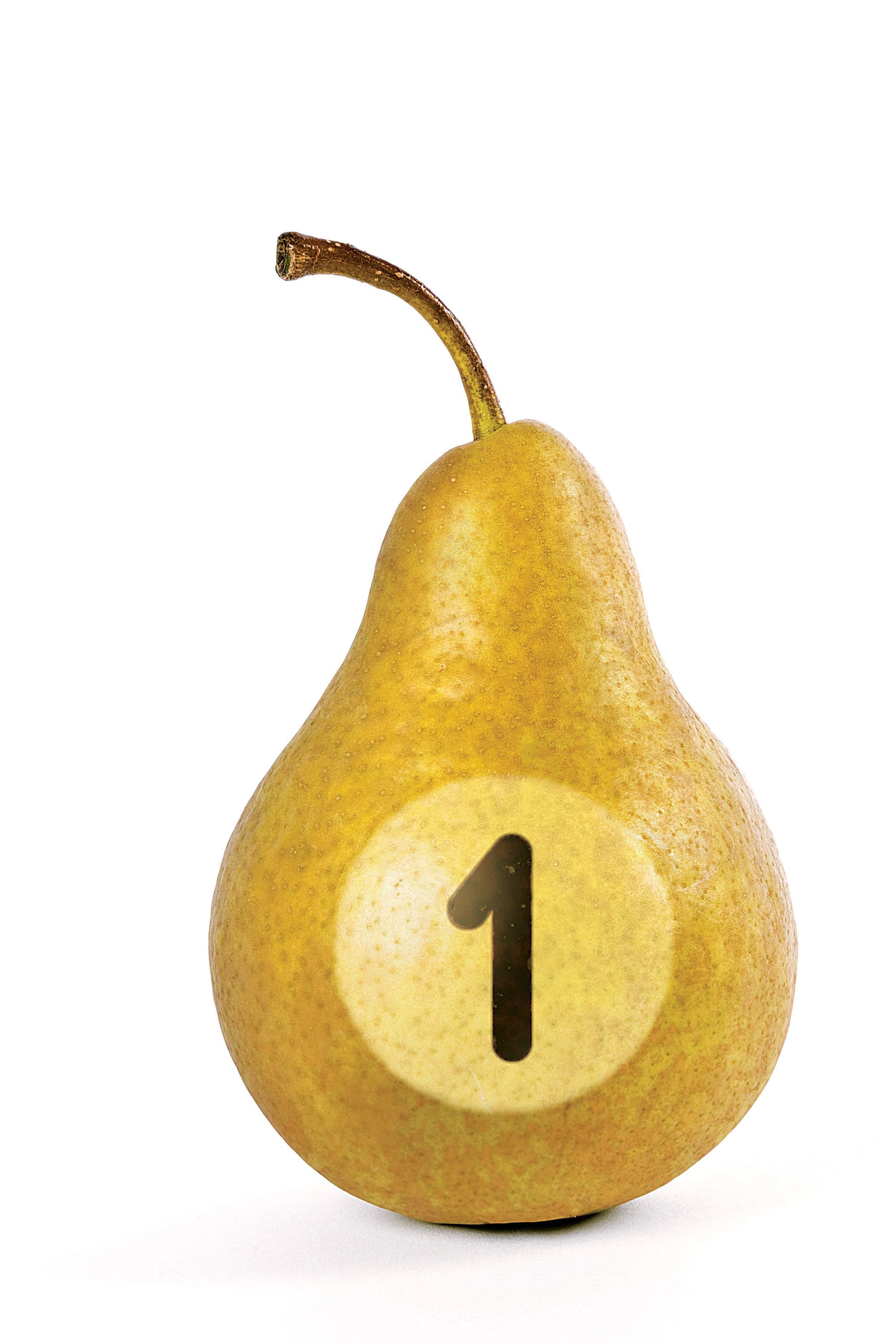 12009-11-05A bookshop renowned for its rare works is mysteriously and filled with copies of a book entitled 1, which doesn't appear to have a publisher or author. The strange almanac describes what happens to humanity in a minute. A police investigation begins and the bookshop staff are placed in solitary confinement by the Bureau for Paranormal Research. As the investigation progresses, the situation becomes more complex and the book becomes increasingly well-known, raising numerous controversies. Plagued by doubts, the protagonist has to face facts: reality only exists in the imagination of individuals.More...
12009-11-05A bookshop renowned for its rare works is mysteriously and filled with copies of a book entitled 1, which doesn't appear to have a publisher or author. The strange almanac describes what happens to humanity in a minute. A police investigation begins and the bookshop staff are placed in solitary confinement by the Bureau for Paranormal Research. As the investigation progresses, the situation becomes more complex and the book becomes increasingly well-known, raising numerous controversies. Plagued by doubts, the protagonist has to face facts: reality only exists in the imagination of individuals.More... The Way to the Heart2024-04-02Ava, an award-winning chef at a big-city restaurant, has lost her spark. Her boss sends her out to find herself to save her menu and her job. She returns home and finds little to inspire her, but when she reunites with her childhood friend Logan, Ava has to get her head out of the clouds and her foot out of her mouth to rediscover her passion for food.More...
The Way to the Heart2024-04-02Ava, an award-winning chef at a big-city restaurant, has lost her spark. Her boss sends her out to find herself to save her menu and her job. She returns home and finds little to inspire her, but when she reunites with her childhood friend Logan, Ava has to get her head out of the clouds and her foot out of her mouth to rediscover her passion for food.More... Fantozzi in Heaven1993-12-21One by one, with a sweet but inexorable rate, Ugo's colleagues, go to a better life. When Ugo is attending at one of the innumerable funerals, he and the priest remain involved in an accident. The doctor says that Ugo as only one week left to liveMore...
Fantozzi in Heaven1993-12-21One by one, with a sweet but inexorable rate, Ugo's colleagues, go to a better life. When Ugo is attending at one of the innumerable funerals, he and the priest remain involved in an accident. The doctor says that Ugo as only one week left to liveMore... My Little Pony: Equestria Girls - Friendship Games2015-10-24Canterlot High meets its rival school, Crystal Prep Academy, in a competition that’s a long-standing tradition – The Friendship Games. Sunset Shimmer is tasked with keeping magic out of the games to avoid the appearance of impropriety while she and her friends compete against Crystal Prep’s top students led by someone with an equal amount of interest in Equestrian magic – this world’s TWILIGHT SPARKLE.More...
My Little Pony: Equestria Girls - Friendship Games2015-10-24Canterlot High meets its rival school, Crystal Prep Academy, in a competition that’s a long-standing tradition – The Friendship Games. Sunset Shimmer is tasked with keeping magic out of the games to avoid the appearance of impropriety while she and her friends compete against Crystal Prep’s top students led by someone with an equal amount of interest in Equestrian magic – this world’s TWILIGHT SPARKLE.More... Kill Shot2023-08-15Posing as hunters, a group of terrorists are in search of $100 million that was stolen and lost in a plane crash en route from Afghanistan.More...
Kill Shot2023-08-15Posing as hunters, a group of terrorists are in search of $100 million that was stolen and lost in a plane crash en route from Afghanistan.More...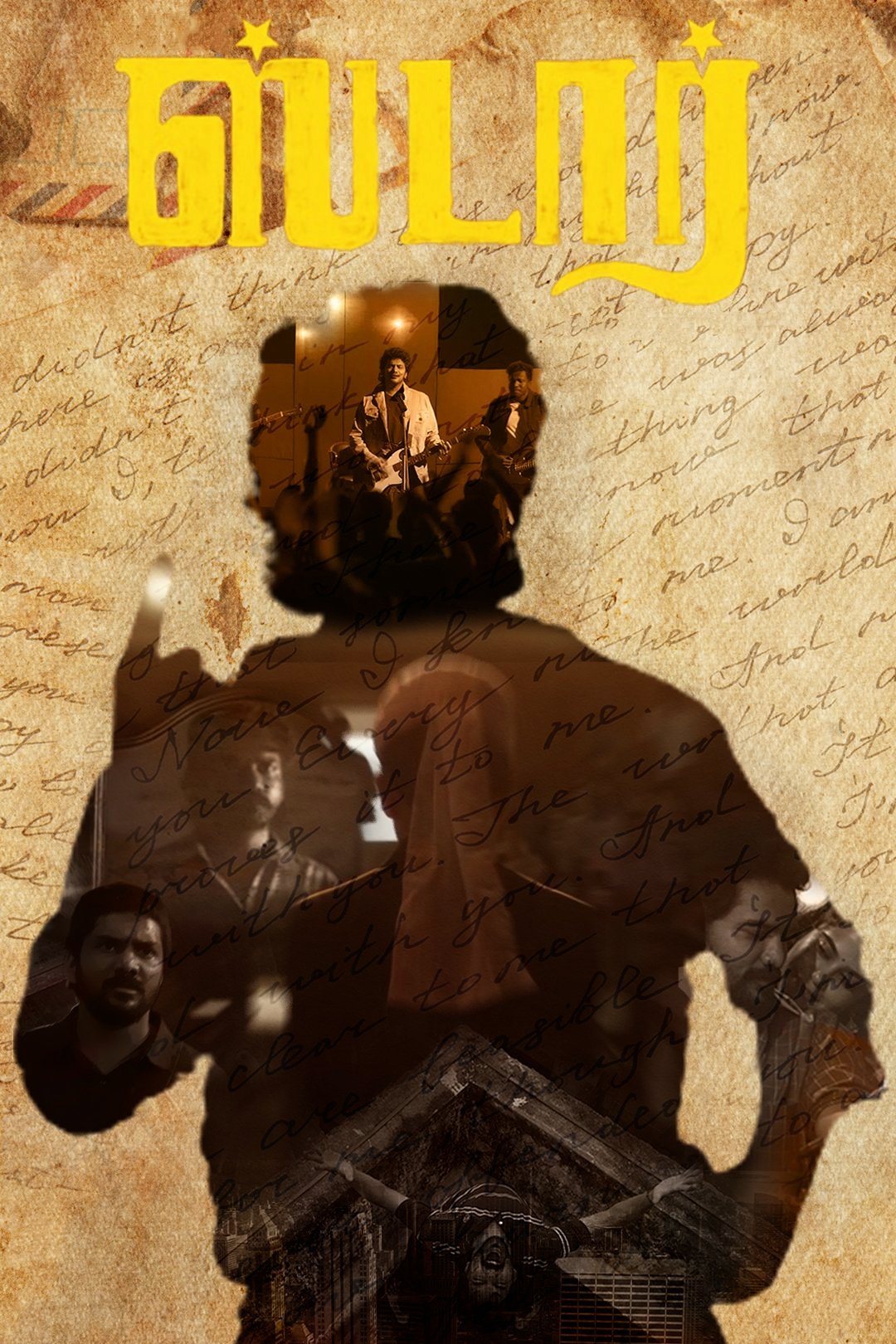 Star2024-05-10Follows a youngster Kalai and his aspirations of becoming a 'Star' in the Tamil Film Industry. Born in a lower-middle-class family, will Kalai overcome all his struggles to emerge as a Star?More...
Star2024-05-10Follows a youngster Kalai and his aspirations of becoming a 'Star' in the Tamil Film Industry. Born in a lower-middle-class family, will Kalai overcome all his struggles to emerge as a Star?More...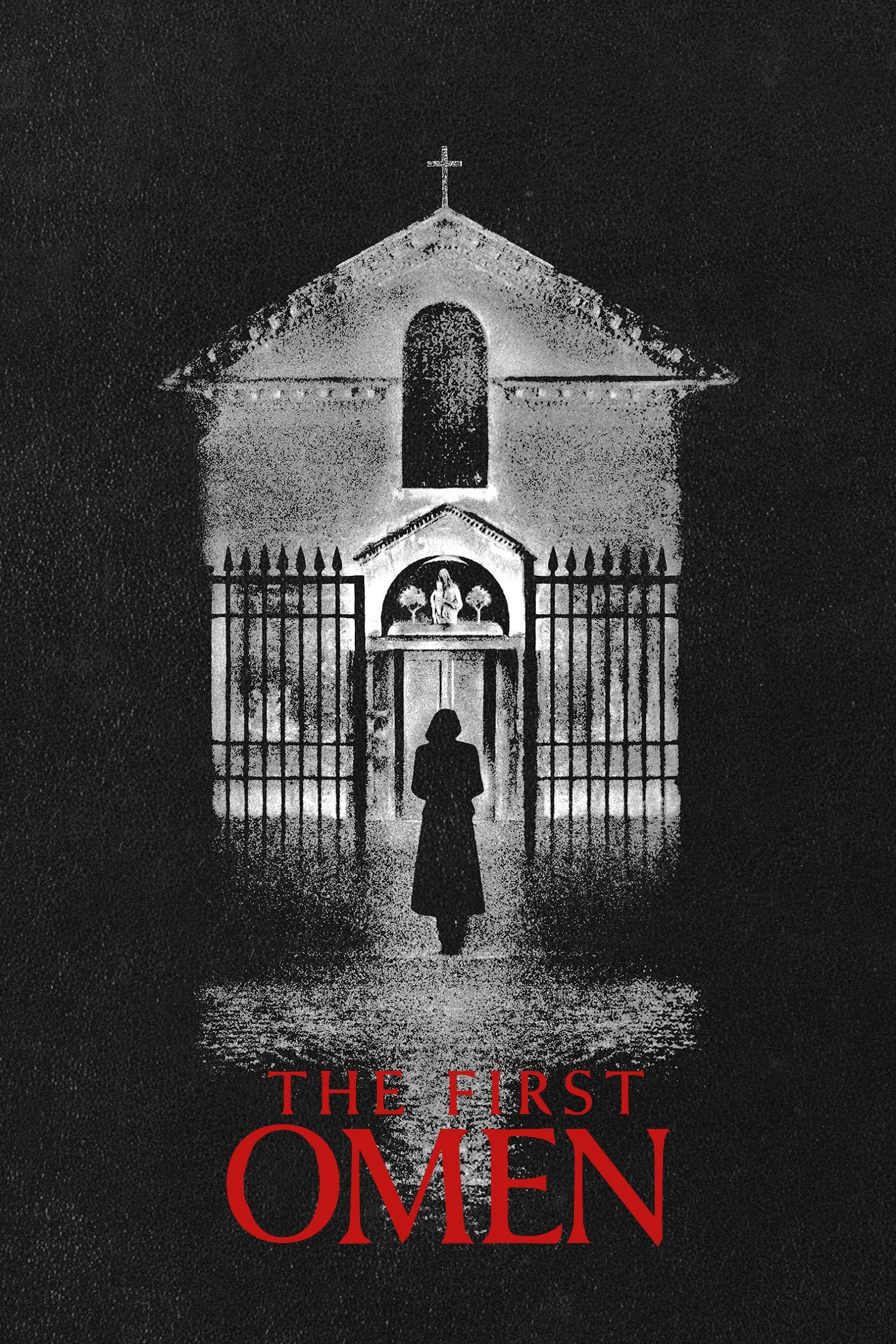 The First Omen2024-04-03When a young American woman is sent to Rome to begin a life of service to the church, she encounters a darkness that causes her to question her own faith and uncovers a terrifying conspiracy that hopes to bring about the birth of evil incarnate.More...
The First Omen2024-04-03When a young American woman is sent to Rome to begin a life of service to the church, she encounters a darkness that causes her to question her own faith and uncovers a terrifying conspiracy that hopes to bring about the birth of evil incarnate.More...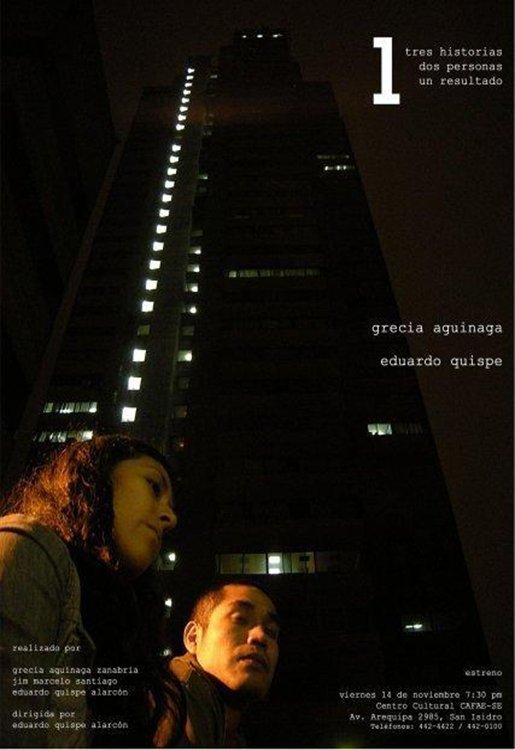 12008-06-01There is no descriptionMore...
12008-06-01There is no descriptionMore... Boston Strangler2023-03-16Reporters Loretta McLaughlin and Jean Cole bravely pursue the story of the Boston Strangler at great personal risk, putting their own lives on the line in their quest to uncover the truth.More...
Boston Strangler2023-03-16Reporters Loretta McLaughlin and Jean Cole bravely pursue the story of the Boston Strangler at great personal risk, putting their own lives on the line in their quest to uncover the truth.More... What's New Scooby-Doo? Vol. 4: Merry Scary Holiday2004-10-05A perfect ski vacation heads downhill in Winter Hollow, where any mention of Christmas unleashes the feared Headless Snowman. It's "A Scooby Doo Christmas" when Scooby-Doo and crew set out to melt the ferocious Frosty and save the holiday. It's no fun in "Toy Scary Boo" when all the toys in Happy Toyland start coming alive and wreaking havoc. In "Homeward Hound," a fiercely fanged cat creature petrifies the competing pooches at a dog show, including the visiting Scooby-Doo! Finally, Shaggy and Scooby-Doo's wildest dreams come true when they win a tour of Munchville, home of Scooby Snax dough and it spells out a "Recipe for Disaster."More...
What's New Scooby-Doo? Vol. 4: Merry Scary Holiday2004-10-05A perfect ski vacation heads downhill in Winter Hollow, where any mention of Christmas unleashes the feared Headless Snowman. It's "A Scooby Doo Christmas" when Scooby-Doo and crew set out to melt the ferocious Frosty and save the holiday. It's no fun in "Toy Scary Boo" when all the toys in Happy Toyland start coming alive and wreaking havoc. In "Homeward Hound," a fiercely fanged cat creature petrifies the competing pooches at a dog show, including the visiting Scooby-Doo! Finally, Shaggy and Scooby-Doo's wildest dreams come true when they win a tour of Munchville, home of Scooby Snax dough and it spells out a "Recipe for Disaster."More...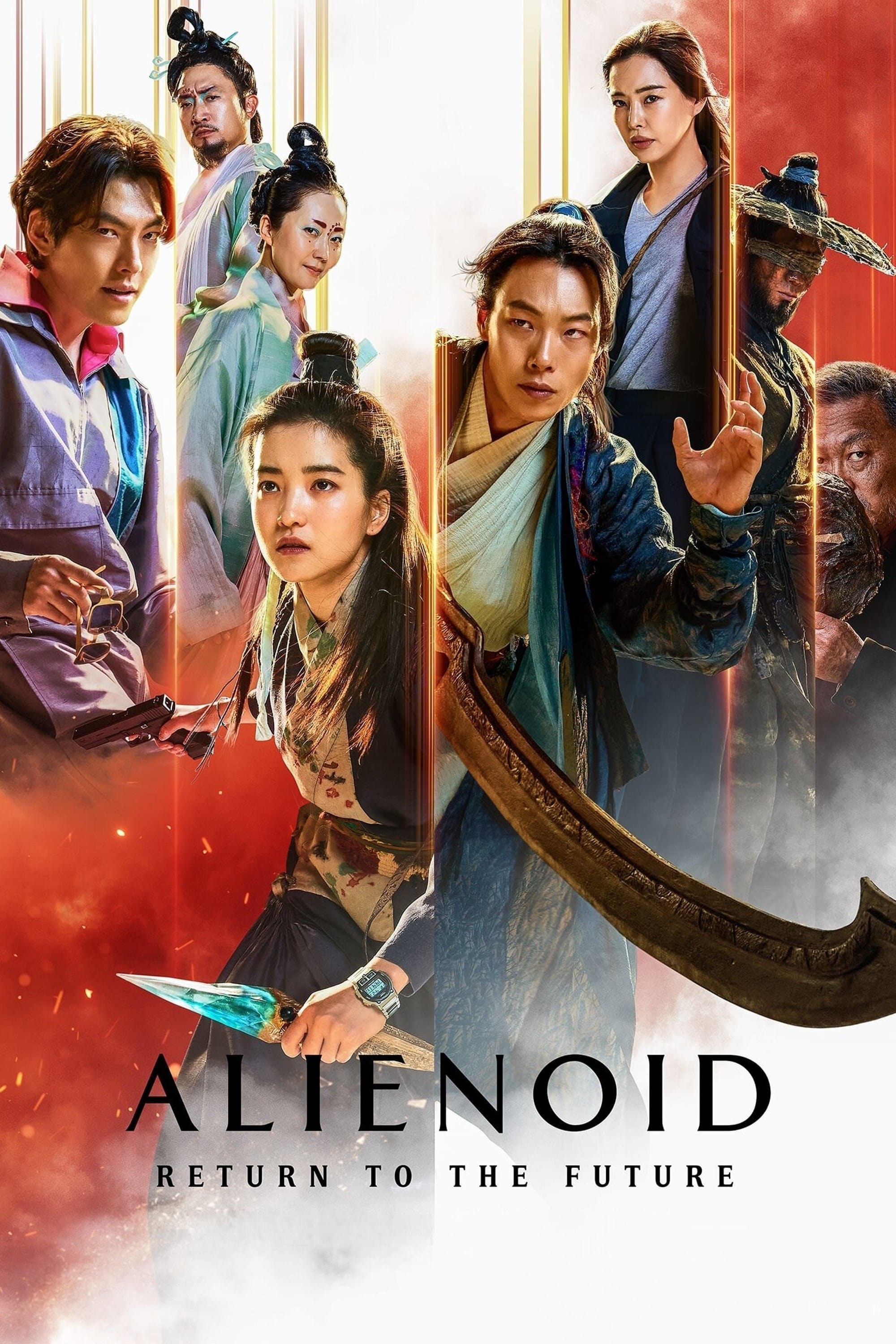 Alienoid: Return to the Future2024-01-10Ean has a critical mission to return to the future to save everyone. However, she becomes trapped in the distant past while trying to prevent the escape of alien prisoners who are locked up in the bodies of humans. Meanwhile, Muruk, who helps Ean escape various predicaments, is unnerved when he begins sensing the presence of a strange being in his body. Traveling through the centuries, they are trying to prevent the explosion of the haava.More...
Alienoid: Return to the Future2024-01-10Ean has a critical mission to return to the future to save everyone. However, she becomes trapped in the distant past while trying to prevent the escape of alien prisoners who are locked up in the bodies of humans. Meanwhile, Muruk, who helps Ean escape various predicaments, is unnerved when he begins sensing the presence of a strange being in his body. Traveling through the centuries, they are trying to prevent the explosion of the haava.More... The Wild Soccer Bunch 22005-02-17An unsupervised junior soccer team loses its ace player to the leader of a rival gang. Since only an entire team can win, they must have her back to be able to win the game against the national team. The existence of The Wild Soccer Bunch is at stake ...More...
The Wild Soccer Bunch 22005-02-17An unsupervised junior soccer team loses its ace player to the leader of a rival gang. Since only an entire team can win, they must have her back to be able to win the game against the national team. The existence of The Wild Soccer Bunch is at stake ...More... Revue Starlight Band Live "Starry Session"2023-11-04Shōjo☆Kageki Revue Starlight Band Live "Starry Session" revival (少女☆歌劇 レヴュースタァライト」バンドライブ "Starry Session" revival) is a live concert event that took place on November 4 and 5, 2023 at Makuhari Messe Event Hall in Chiba, Tokyo.More...
Revue Starlight Band Live "Starry Session"2023-11-04Shōjo☆Kageki Revue Starlight Band Live "Starry Session" revival (少女☆歌劇 レヴュースタァライト」バンドライブ "Starry Session" revival) is a live concert event that took place on November 4 and 5, 2023 at Makuhari Messe Event Hall in Chiba, Tokyo.More... 'R Xmas2001-12-14A New York drug dealer is kidnapped, and his wife must try to come up with the money and drugs to free him from his abductors before Christmas.More...
'R Xmas2001-12-14A New York drug dealer is kidnapped, and his wife must try to come up with the money and drugs to free him from his abductors before Christmas.More...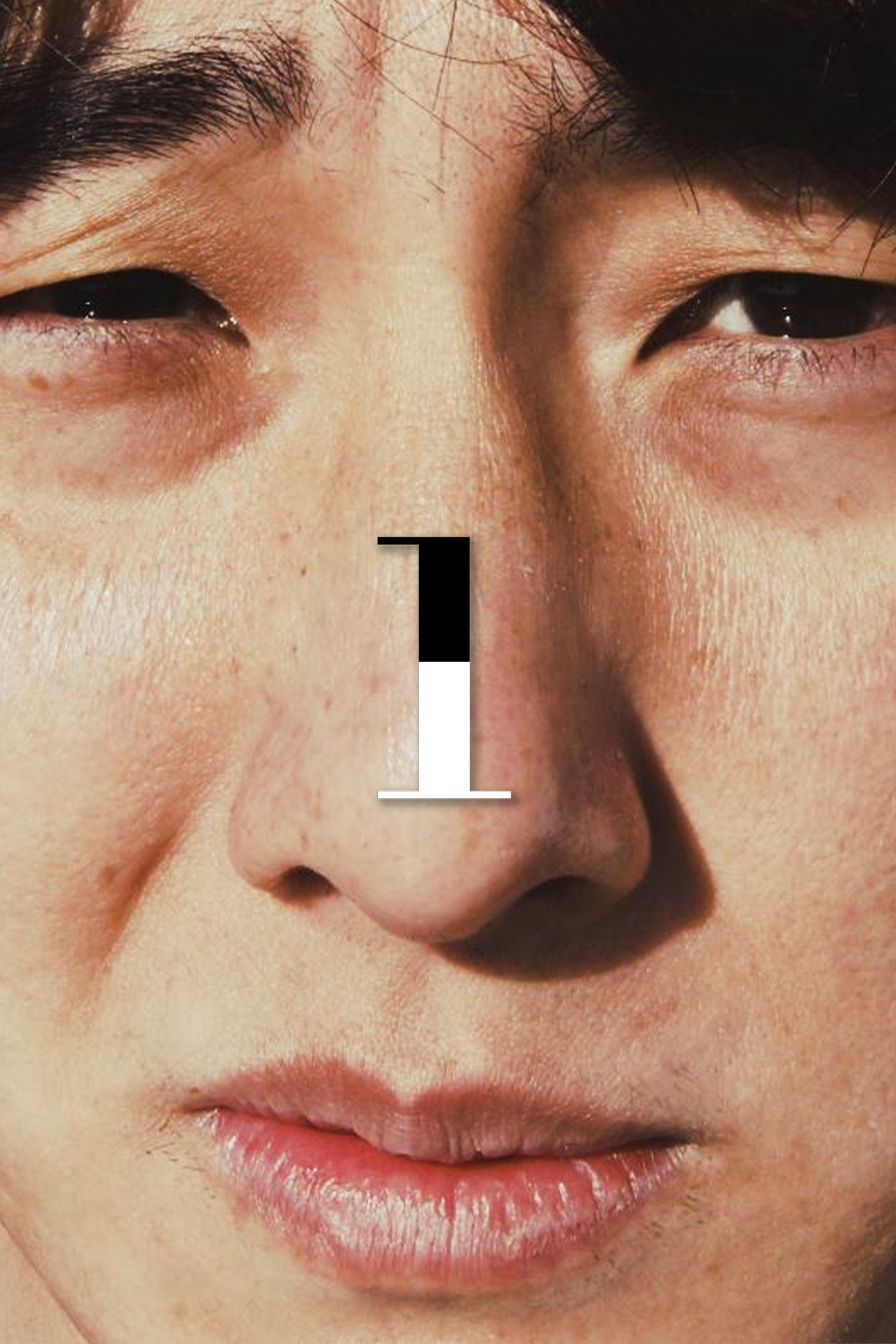 12021-08-28There is no descriptionMore...
12021-08-28There is no descriptionMore...- 12019-07-14Directed by Anne VieuxMore...
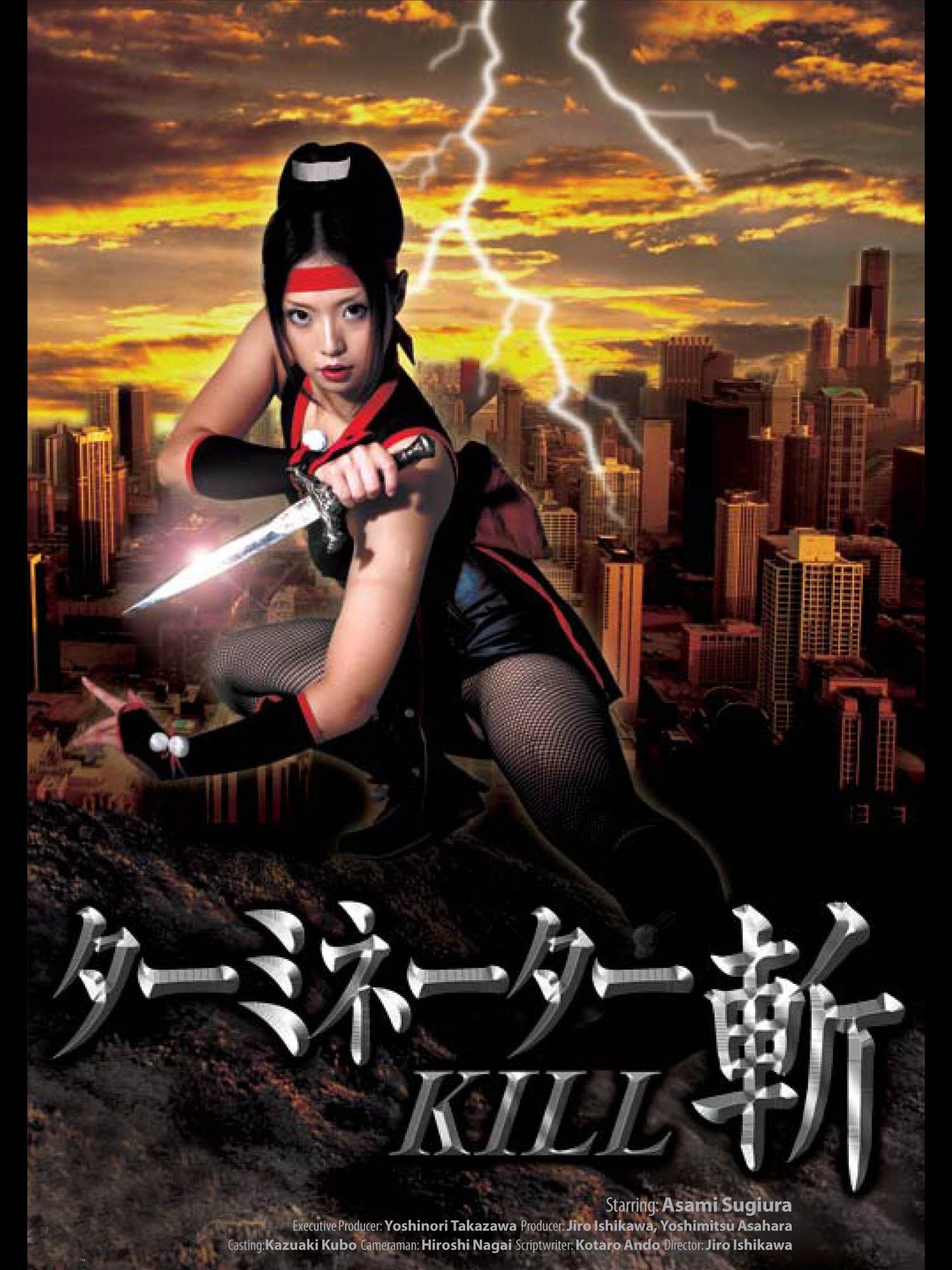 Terminator Zan Kill2009-07-09In 2050, a nuclear war broke out all over the world. With the help of a military industry family, Tanahashi, Japanese Imperial Army plans to conquer the world and sets up new government NEO YAMATO. In order to against the tyranny of the new government, a rebellious army of the government fights for peace.More...
Terminator Zan Kill2009-07-09In 2050, a nuclear war broke out all over the world. With the help of a military industry family, Tanahashi, Japanese Imperial Army plans to conquer the world and sets up new government NEO YAMATO. In order to against the tyranny of the new government, a rebellious army of the government fights for peace.More... (re)kindle2021-02-21Ana and Helen, two divorced women, were close friends as teenagers. Today, amidst the corona virus pandemic and in quarantine, they get in touch after 20 years via internet. Through video conference calls, memories, sensations and emotions reflourishes.More...
(re)kindle2021-02-21Ana and Helen, two divorced women, were close friends as teenagers. Today, amidst the corona virus pandemic and in quarantine, they get in touch after 20 years via internet. Through video conference calls, memories, sensations and emotions reflourishes.More...
Similar Movies
We Are Here
 2016-05-20What happens when 300 lesbians from around the world attend the largest United Nations conference? How did two busloads of lesbians headed to an underground nightclub help spark the birth of a lala (LBT) movement in China? At the 1995 Fourth World Conference on Women in Beijing, the first ever lesbian tent at an UN NGO Forum was created. Emerging from hidden shadows of shame and invisibility, Chinese lalas began a hard-fought path of deliverance from themselves, from family, and from an apprehensive environment. In doing so, they sought empowerment and change as they explored concepts and issues from self-affirmation to rights consciousness. The film powerfully moves forward to the present day and shows the drastic change in today’s young feminist lalas – their challenging of sexism and homophobia with daring public street actions on subways – a parallel action to their forerunners in 1995, with much vigor and defiance 20 years later.
2016-05-20What happens when 300 lesbians from around the world attend the largest United Nations conference? How did two busloads of lesbians headed to an underground nightclub help spark the birth of a lala (LBT) movement in China? At the 1995 Fourth World Conference on Women in Beijing, the first ever lesbian tent at an UN NGO Forum was created. Emerging from hidden shadows of shame and invisibility, Chinese lalas began a hard-fought path of deliverance from themselves, from family, and from an apprehensive environment. In doing so, they sought empowerment and change as they explored concepts and issues from self-affirmation to rights consciousness. The film powerfully moves forward to the present day and shows the drastic change in today’s young feminist lalas – their challenging of sexism and homophobia with daring public street actions on subways – a parallel action to their forerunners in 1995, with much vigor and defiance 20 years later.Pearl
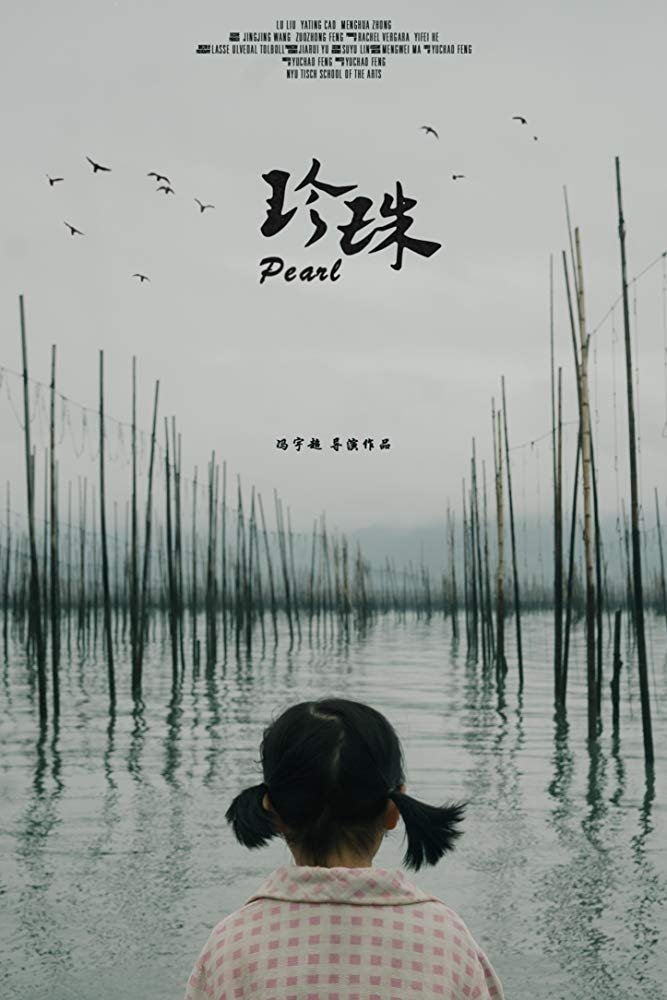 2018-05-05Six-year old Lin resides in an isolated fishing village with her brother and their widowed mother. When the family gets an opportunity to start a new life, Lin has a startling revelation. A melancholic tale inspired by real events.
2018-05-05Six-year old Lin resides in an isolated fishing village with her brother and their widowed mother. When the family gets an opportunity to start a new life, Lin has a startling revelation. A melancholic tale inspired by real events.All There Will Be
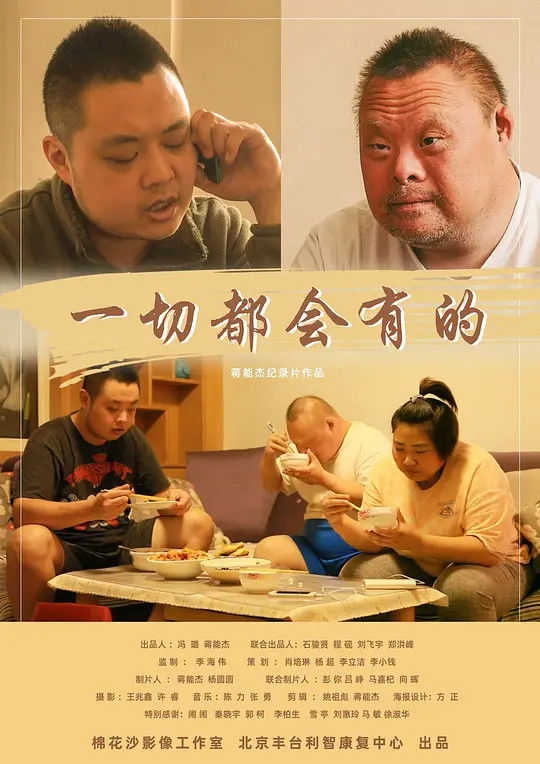 2020-11-08There is no description
2020-11-08There is no descriptionBlossom in Midnight
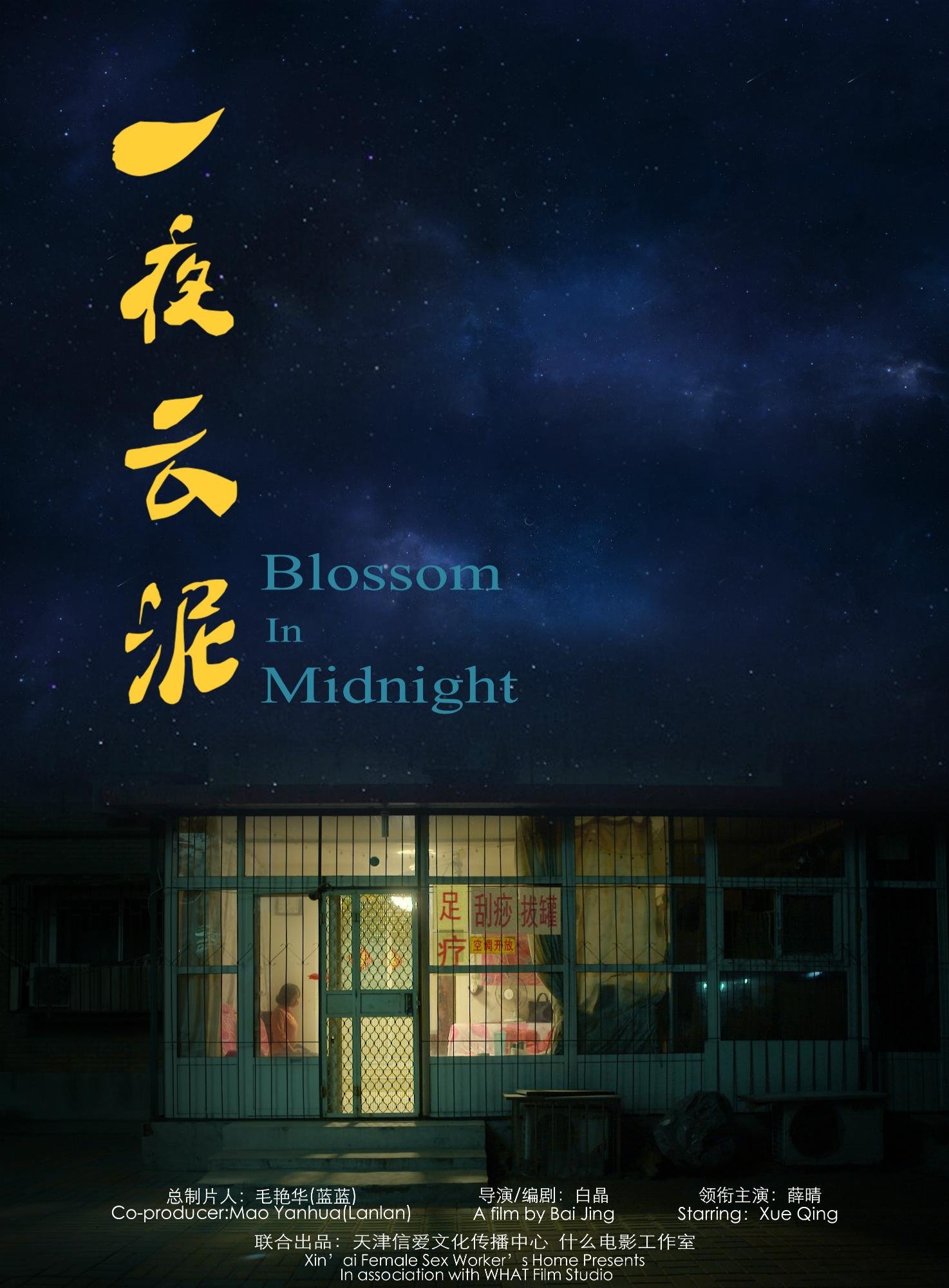 2015-11-01The film is about a woman from a rural area and works in a small restaurant as a cleaner with very low pay. As she has to support her family (mother and daughter), she has no money for herself for better makeup or dress up. She has low esteem. She later was fired by the boss. Because of no money and no home, she goes to the massage parlor and works there a sex worker. It happens that the first customer is the chef of previous restaurant. She has admired him for a while. In this first sex exchange, she is well satisfied both emotionally as well as economically. She starts sex work this way and becomes more confident.
2015-11-01The film is about a woman from a rural area and works in a small restaurant as a cleaner with very low pay. As she has to support her family (mother and daughter), she has no money for herself for better makeup or dress up. She has low esteem. She later was fired by the boss. Because of no money and no home, she goes to the massage parlor and works there a sex worker. It happens that the first customer is the chef of previous restaurant. She has admired him for a while. In this first sex exchange, she is well satisfied both emotionally as well as economically. She starts sex work this way and becomes more confident.The Blind Storyteller...
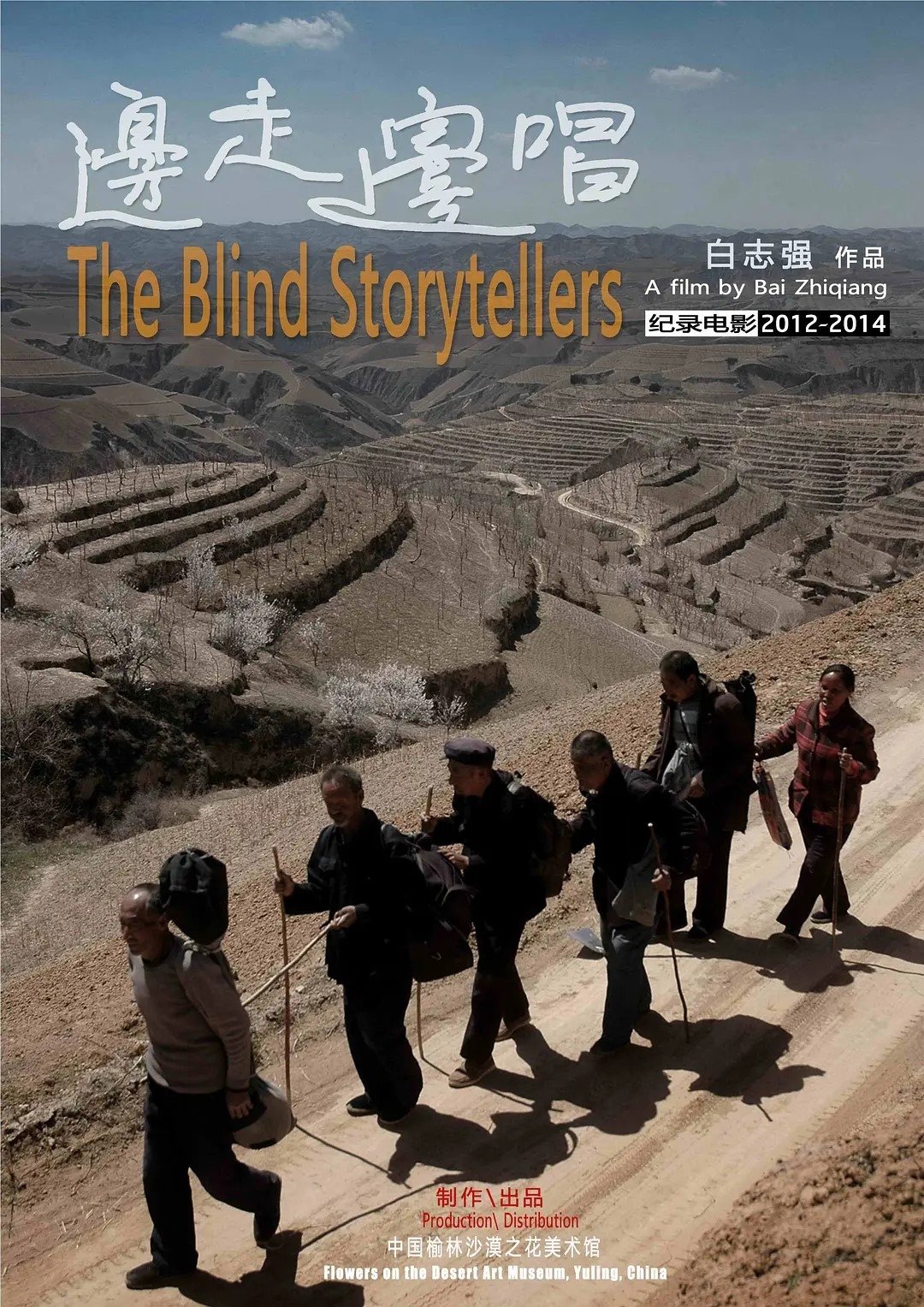 2014-10-20Li Shouwang is the leader of a blind storytellers team, learned storytelling at the age of 19. His childernare living hard in other cities. Li's money amost goes to his children's pocket every year. But with urbanisation, the storytellers have lost almost all their audience. As the conflict between the storytelling team and the village team intensified, his son, who was far away from home, became the only spiritual sustains... When he was excited that his son would be taking his family home for Chinese New Year, what's await is a sigh.
2014-10-20Li Shouwang is the leader of a blind storytellers team, learned storytelling at the age of 19. His childernare living hard in other cities. Li's money amost goes to his children's pocket every year. But with urbanisation, the storytellers have lost almost all their audience. As the conflict between the storytelling team and the village team intensified, his son, who was far away from home, became the only spiritual sustains... When he was excited that his son would be taking his family home for Chinese New Year, what's await is a sigh.Twenty Two
 2017-08-14Follow the lives of the elderly survivors who were forced into sex slavery as “Comfort Women” by the Japanese during World War II. At the time of filming, only 22 of these women were still alive to tell their story. Through their own personal histories and perspectives, they tell a tale that should never be forgotten to generations unaware of the brutalization that occurred.
2017-08-14Follow the lives of the elderly survivors who were forced into sex slavery as “Comfort Women” by the Japanese during World War II. At the time of filming, only 22 of these women were still alive to tell their story. Through their own personal histories and perspectives, they tell a tale that should never be forgotten to generations unaware of the brutalization that occurred.Just in Time
 2019-05-31Andy is a novelist who works from home. One day, a girl mysteriously appears in his toilet. She claims to be from the future and needs his help. Her name is Pomegranate.
2019-05-31Andy is a novelist who works from home. One day, a girl mysteriously appears in his toilet. She claims to be from the future and needs his help. Her name is Pomegranate.Wu Ding River
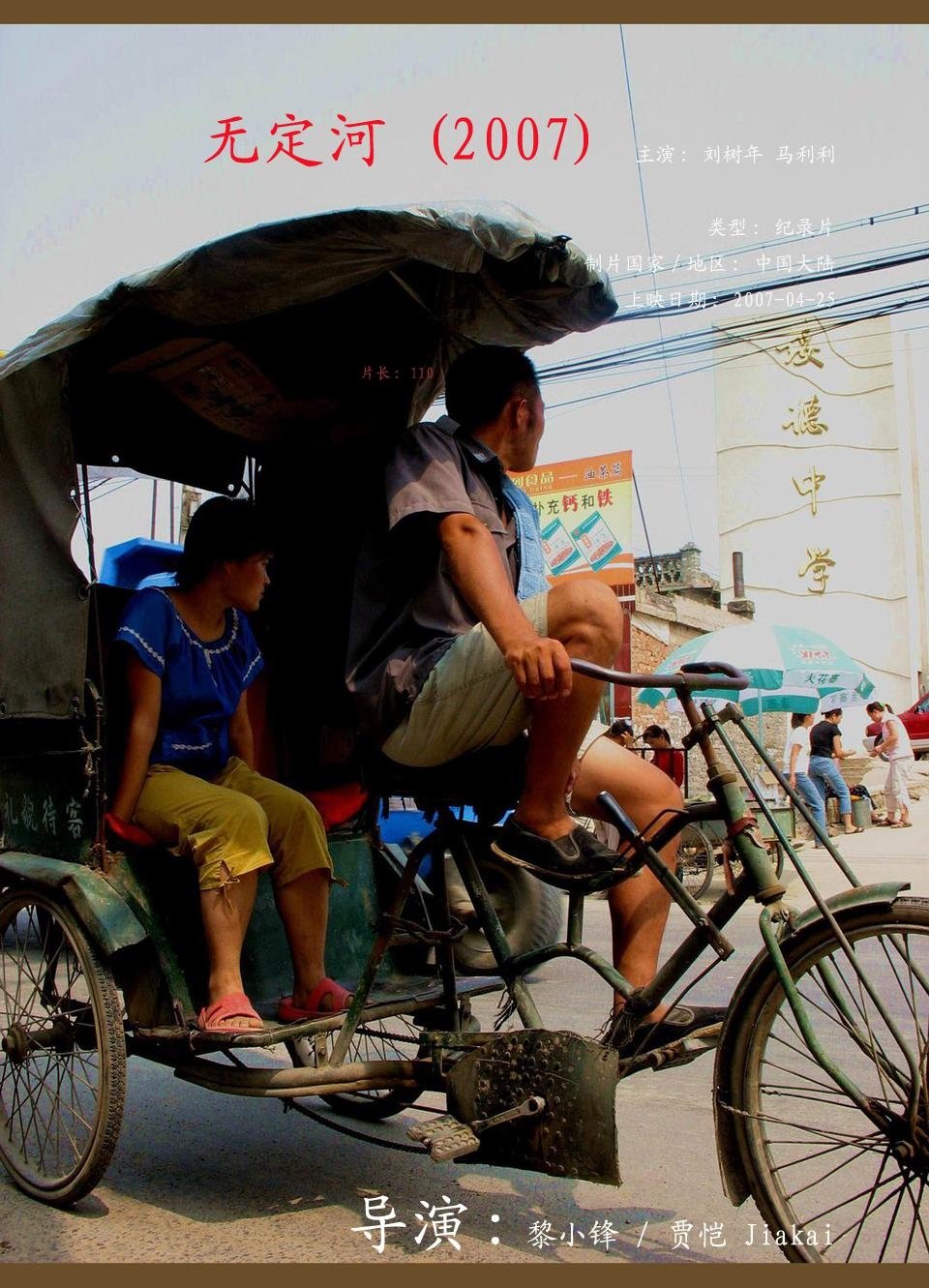 2007-01-01In northern Shaanxi, those three-wheeled trucks who came to the city from rural areas came to be suffering. They talked hard and finally sent their children to distant universities. Four years have passed, the big children can't find a job, the future is uncertain, the smaller children have come to the age of the university. It seems to be in the instinct, a family is still like a hen hatch, waiting for the new hope to break out.
2007-01-01In northern Shaanxi, those three-wheeled trucks who came to the city from rural areas came to be suffering. They talked hard and finally sent their children to distant universities. Four years have passed, the big children can't find a job, the future is uncertain, the smaller children have come to the age of the university. It seems to be in the instinct, a family is still like a hen hatch, waiting for the new hope to break out.I Have Nothing to Say...
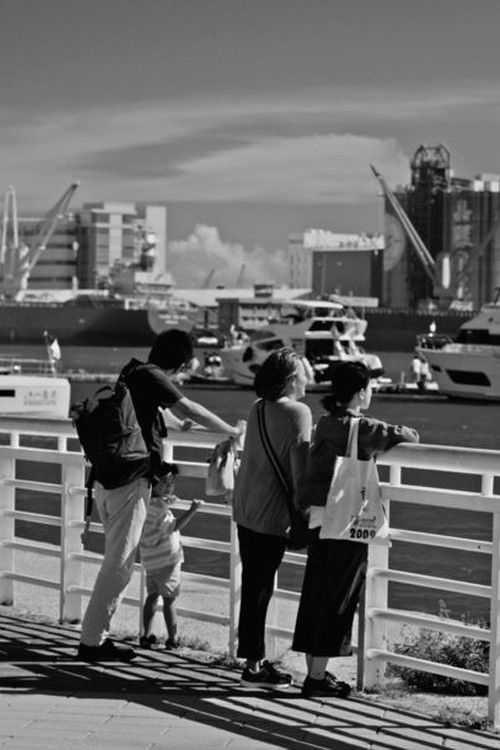 2017-10-29The Chinese police visit head-teacher Chen at home. Her daughter, a dissident filmmaker living in Hong Kong, plans yet another critical film about China's colonization of the small autonomous territory. The authorities demand that Chen travel to her daughter to stop the film project. What they do not take into account is that Chen and her daughter lost contact long ago.
2017-10-29The Chinese police visit head-teacher Chen at home. Her daughter, a dissident filmmaker living in Hong Kong, plans yet another critical film about China's colonization of the small autonomous territory. The authorities demand that Chen travel to her daughter to stop the film project. What they do not take into account is that Chen and her daughter lost contact long ago.News Feed on My...
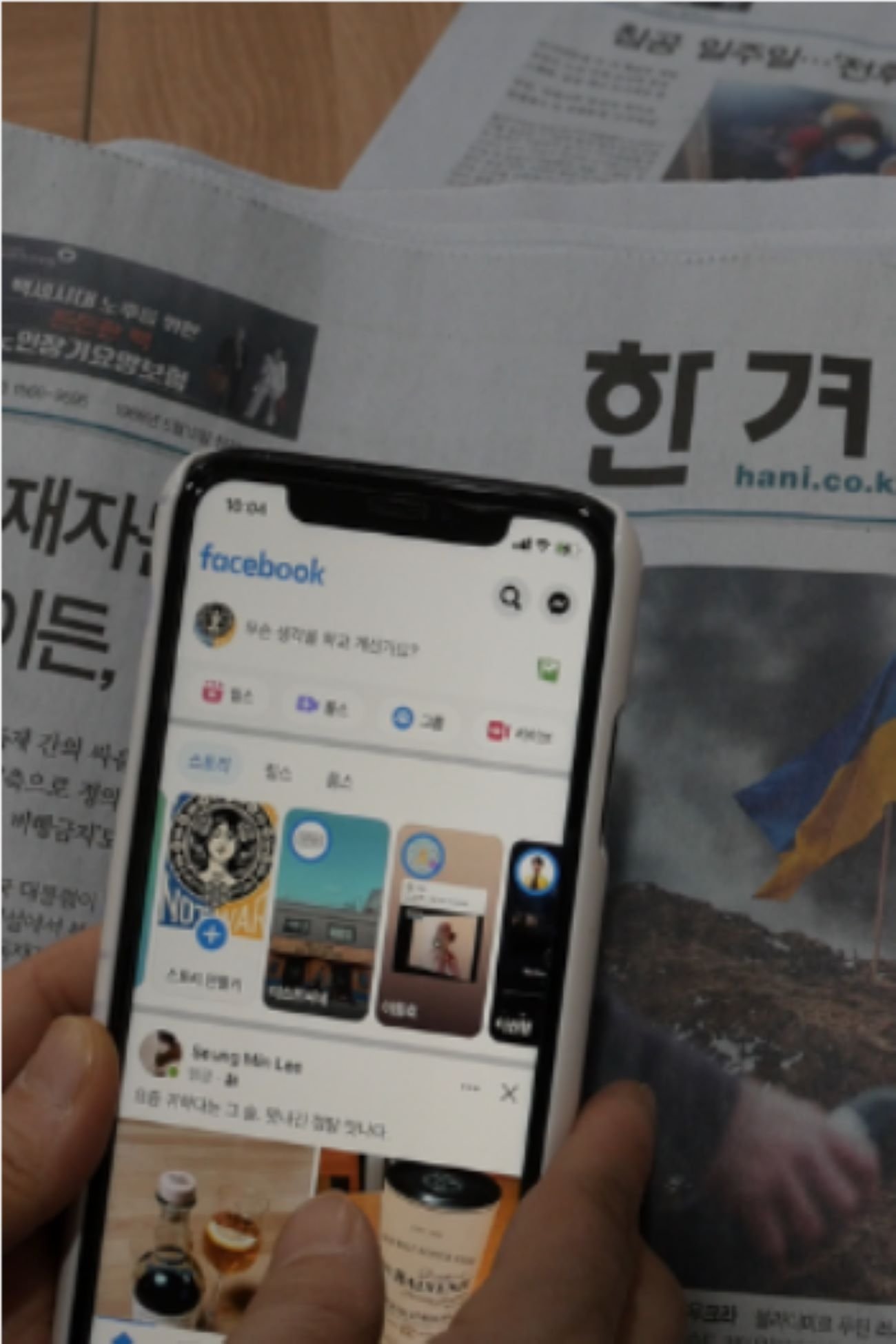 2022-03-27I just watch the news of war in a distant country on my mobile. My fingers go back day by day to the day the war broke out and pose to see comments posted on the Facebook News Feed that I follow. Outside, I have friends who participated in anti-war rallies.
2022-03-27I just watch the news of war in a distant country on my mobile. My fingers go back day by day to the day the war broke out and pose to see comments posted on the Facebook News Feed that I follow. Outside, I have friends who participated in anti-war rallies.Trashy Treasure
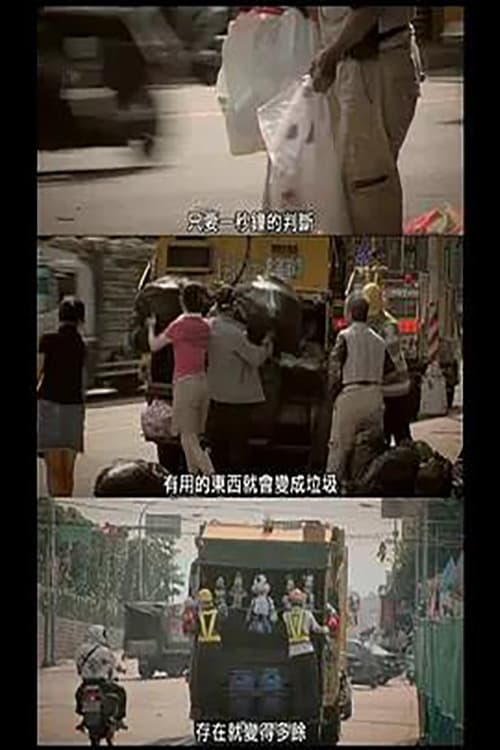 2010-01-01The term "garbage" is relative, but most people's definition of garbage is absolute and rigid, and the definition of a person like "garbage man" is also relative. Compared to the ostrich that disappears when humans avoid garbage and not see psychological. With a lively and lovely tone, the film brings out the special views of how the two protagonists look at trash when they walk between the cities, and then connects the delicate relationship between their love for trash and their families.
2010-01-01The term "garbage" is relative, but most people's definition of garbage is absolute and rigid, and the definition of a person like "garbage man" is also relative. Compared to the ostrich that disappears when humans avoid garbage and not see psychological. With a lively and lovely tone, the film brings out the special views of how the two protagonists look at trash when they walk between the cities, and then connects the delicate relationship between their love for trash and their families.Boys
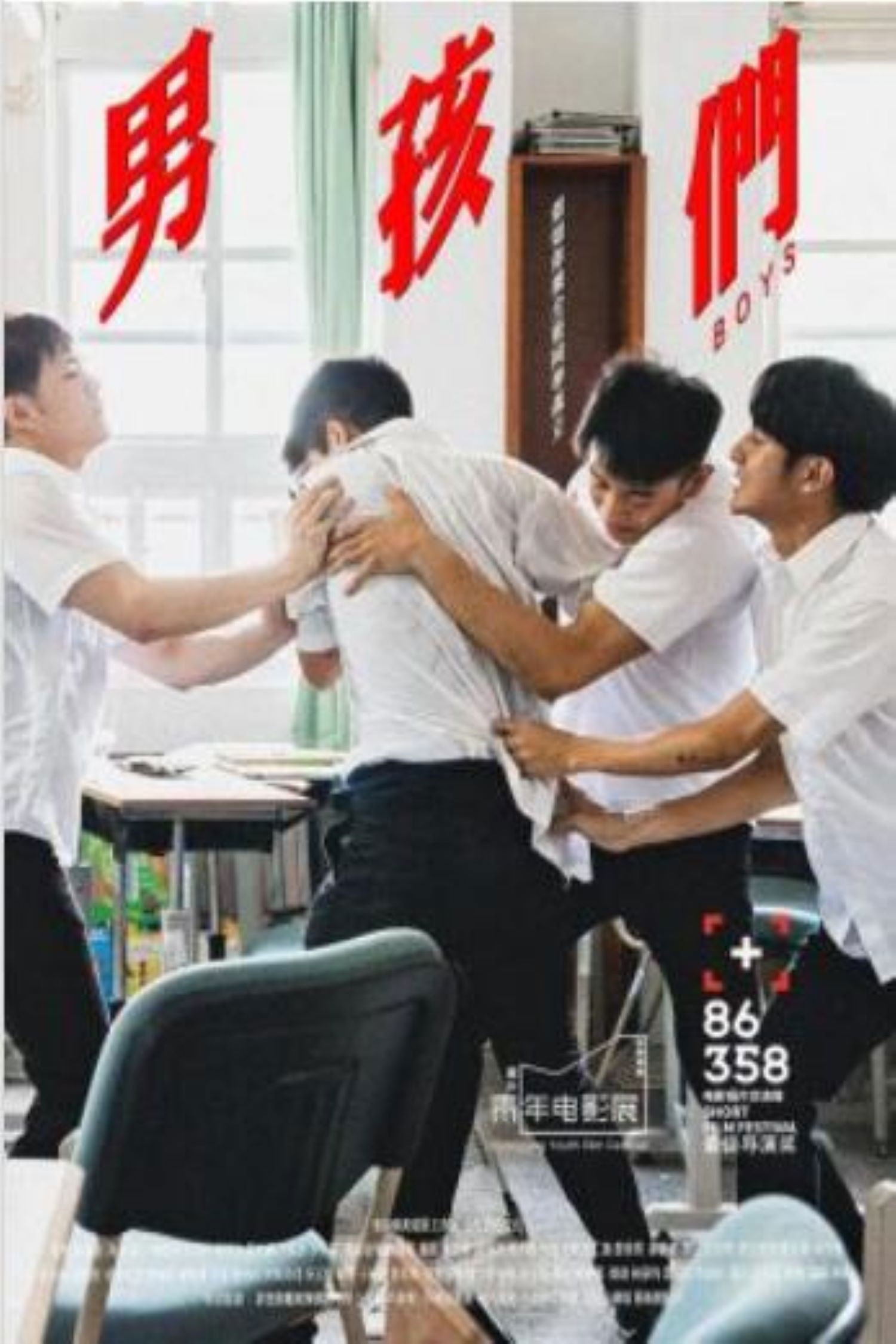 2018-01-01Due to his history of theft in the past, Lin Kuan is falsely accused of stealing from his high school classmate. To prove his innocence, Lin enlists his friend Xiao Bing to make a plan that will clear his name. However, heir seemingly perfect plan takes a turn that pushes Lin to a dangerous edge.
2018-01-01Due to his history of theft in the past, Lin Kuan is falsely accused of stealing from his high school classmate. To prove his innocence, Lin enlists his friend Xiao Bing to make a plan that will clear his name. However, heir seemingly perfect plan takes a turn that pushes Lin to a dangerous edge.Papa Rainbow
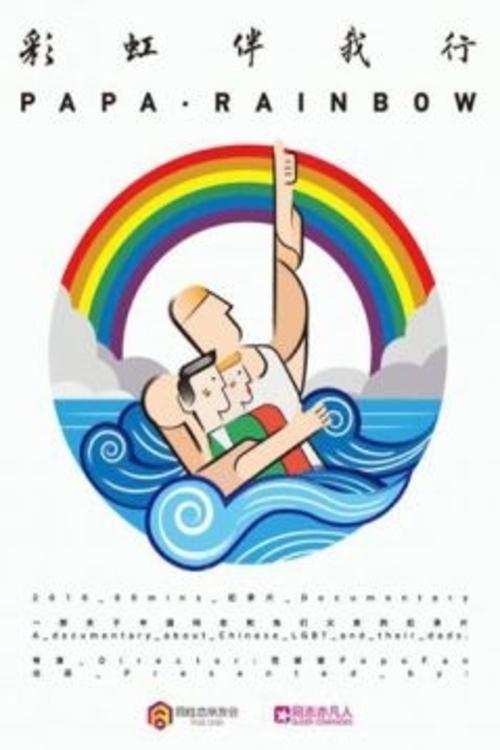 2016-06-12In China, most families have difficulties facing their lesbian, gay, bisexual and/or transgender (LGBT) children. They have to contend with common social beliefs that homosexuality is shameful, abnormal, a perverted condition caused by deviant family relationships. Many parents see their kids as their property, and fathers often assert their authority to ensure that no harm comes to the family reputation. The documentary 'Papa Rainbow' features six Chinese fathers who talk openly and freely about their experiences with their LGBT children. Speaking out against discrimination and stigma, they redefine what it means to protect a household. They fully embrace their kids for who they are, and become pioneer activists fighting for an equal and diverse society.
2016-06-12In China, most families have difficulties facing their lesbian, gay, bisexual and/or transgender (LGBT) children. They have to contend with common social beliefs that homosexuality is shameful, abnormal, a perverted condition caused by deviant family relationships. Many parents see their kids as their property, and fathers often assert their authority to ensure that no harm comes to the family reputation. The documentary 'Papa Rainbow' features six Chinese fathers who talk openly and freely about their experiences with their LGBT children. Speaking out against discrimination and stigma, they redefine what it means to protect a household. They fully embrace their kids for who they are, and become pioneer activists fighting for an equal and diverse society.Miners, Groom, Pneumo...
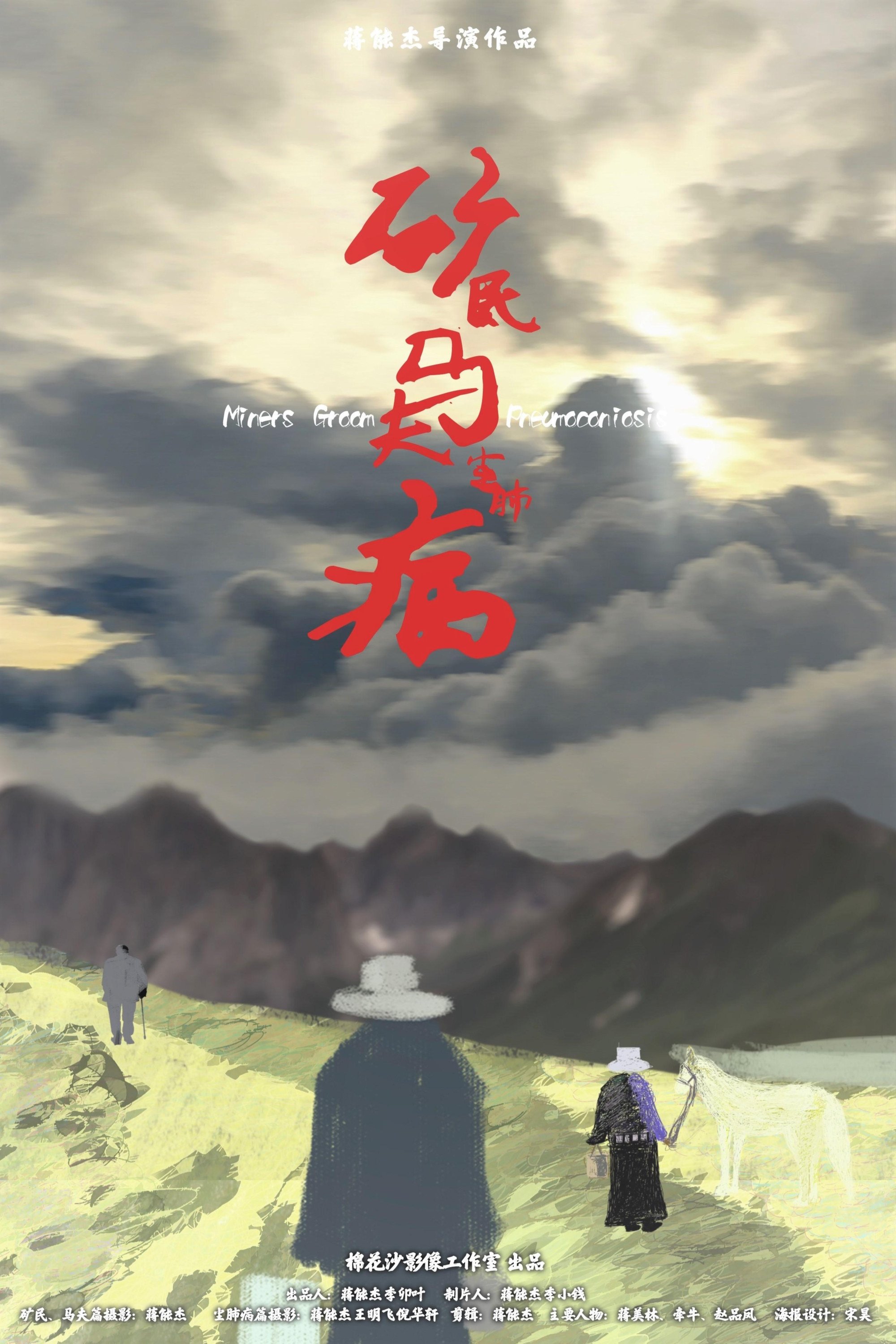 2019-12-01The location of Hunan's southwestern Hunan, the local economy is not active, the people either go out to work or go up the mountain to mine. Due to the constant mining disasters, despite the government's efforts to rectify and regulate, many people still illegally mine. Miners often do not pay attention to the protection of mines. Many years later, many miners have pneumoconiosis. The film started shooting in 2010 until 2018, with a filming period of nearly ten years, until the death of Zhao Pingfeng, the protagonist of pneumoconiosis, leaving young children and mentally handicapped wife.
2019-12-01The location of Hunan's southwestern Hunan, the local economy is not active, the people either go out to work or go up the mountain to mine. Due to the constant mining disasters, despite the government's efforts to rectify and regulate, many people still illegally mine. Miners often do not pay attention to the protection of mines. Many years later, many miners have pneumoconiosis. The film started shooting in 2010 until 2018, with a filming period of nearly ten years, until the death of Zhao Pingfeng, the protagonist of pneumoconiosis, leaving young children and mentally handicapped wife.First Vote
 2020-05-05A soon-to-be first-time voter, the filmmaker’s thought-provoking journey into the Rust Belt and South captures four Asian American voters’ ardent first time grassroots political participation ignited by the 2016 rise of “Chinese Americans for Trump.” FIRST VOTE is a character driven cinema verité style film chronicling the democratic participation of four Asian American voters from 2016 through the 2018 midterm elections.
2020-05-05A soon-to-be first-time voter, the filmmaker’s thought-provoking journey into the Rust Belt and South captures four Asian American voters’ ardent first time grassroots political participation ignited by the 2016 rise of “Chinese Americans for Trump.” FIRST VOTE is a character driven cinema verité style film chronicling the democratic participation of four Asian American voters from 2016 through the 2018 midterm elections.Mama Rainbow
 2012-11-17For Chinese parents, finding out that their kid is gay usually presents a major tragedy, with the big majority utterly unable to accept the homosexuality of their son or daughter. However, during recent years a fresh rainbow wind has been blowing over the Chinese mainland: a pioneer generation of Chinese parents has been stepping up and speaking out on their love for their gay kids. This documentary features 6 mothers from all over China, who talk openly and freely about their experiences with their homosexual children. With their love, they are giving a whole new definition to Chinese-style family bonds.
2012-11-17For Chinese parents, finding out that their kid is gay usually presents a major tragedy, with the big majority utterly unable to accept the homosexuality of their son or daughter. However, during recent years a fresh rainbow wind has been blowing over the Chinese mainland: a pioneer generation of Chinese parents has been stepping up and speaking out on their love for their gay kids. This documentary features 6 mothers from all over China, who talk openly and freely about their experiences with their homosexual children. With their love, they are giving a whole new definition to Chinese-style family bonds.Wheat Harvest
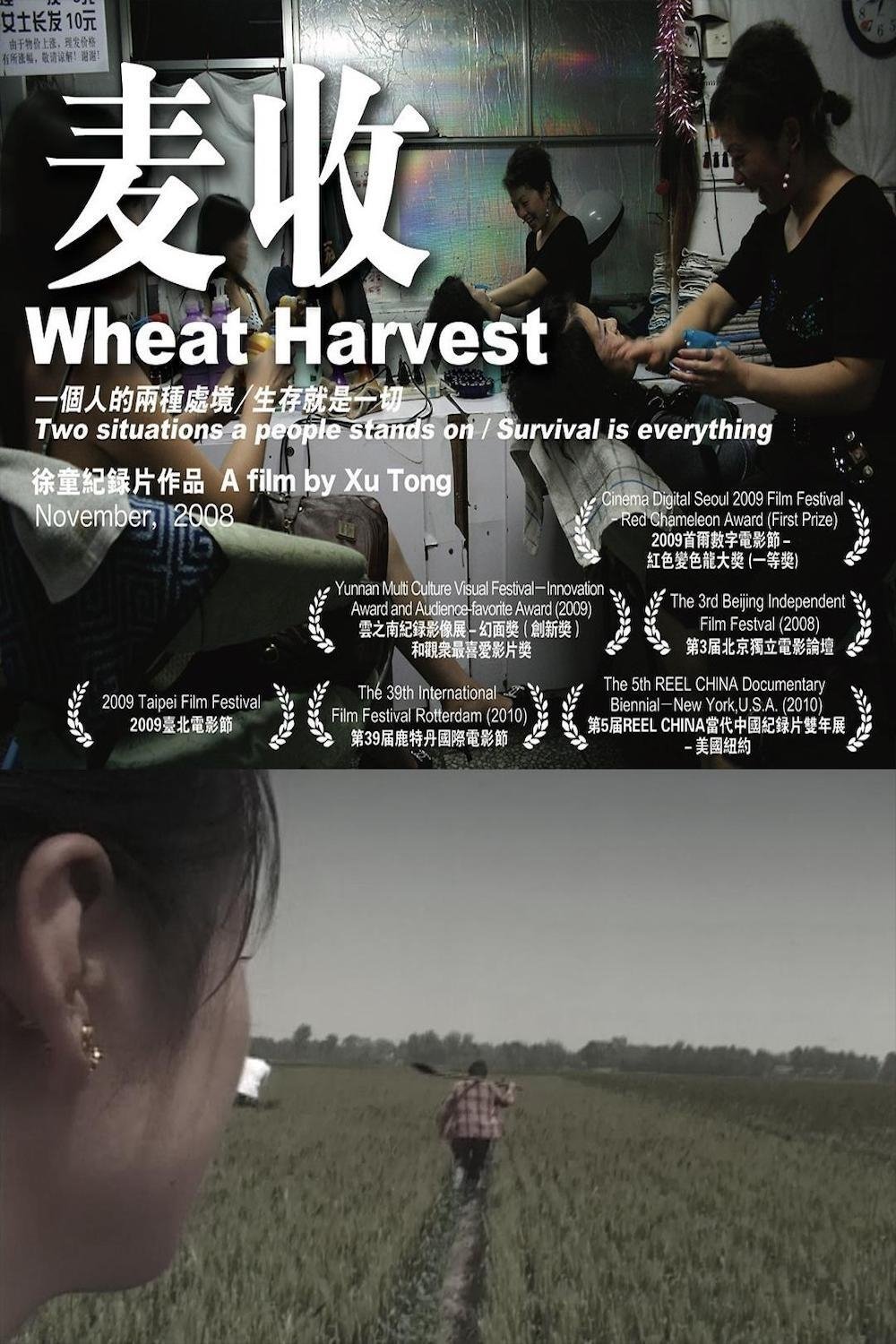 2008-11-01A documentary film showing the life of Niu Hongmiao, a 20-year-old country girl who is now a prostitute in Beijing. Around the time of wheat harvesting, she goes back home to Dingxing County, Hebei Province to visit her parents.
2008-11-01A documentary film showing the life of Niu Hongmiao, a 20-year-old country girl who is now a prostitute in Beijing. Around the time of wheat harvesting, she goes back home to Dingxing County, Hebei Province to visit her parents.Fangshan Church
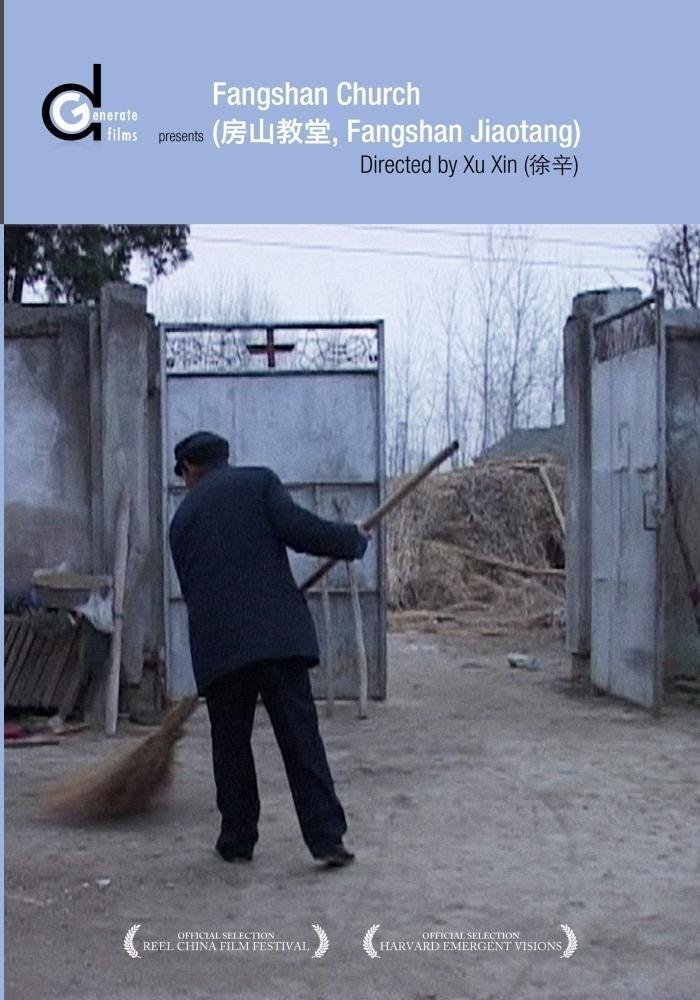 2005-05-05A lively community of Christians inhabit Fangshan, a remote rural town in Jiangsu Province. At the start of the millennium, a church was built there with support of local inhabitants' relatives from Taiwan. On Sundays, up to 900 people gather to worship, while spending most of their days maintaining a modest living as farmers. Their faith governs how they handle family conflicts, illnesses and other difficulties. Still, they must contend with constraining forces in their community, from ancient folk religious practices to laws forbidding evangelism.
2005-05-05A lively community of Christians inhabit Fangshan, a remote rural town in Jiangsu Province. At the start of the millennium, a church was built there with support of local inhabitants' relatives from Taiwan. On Sundays, up to 900 people gather to worship, while spending most of their days maintaining a modest living as farmers. Their faith governs how they handle family conflicts, illnesses and other difficulties. Still, they must contend with constraining forces in their community, from ancient folk religious practices to laws forbidding evangelism.Torch Troupes
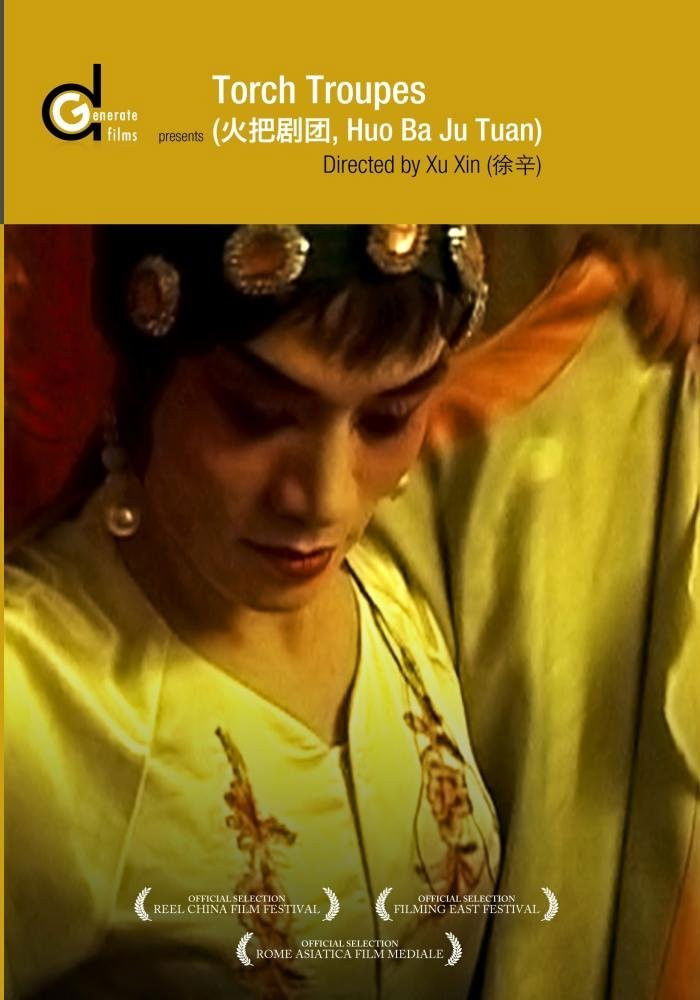 2006-05-05In this vivid portrait of China's musical heritage, Sichuan Opera performers strive to keep a centuries-old artform alive. After thriving for 300 years, Sichuan Opera is an endangered art form. Having survived the Cultural Revolution, state-sponsored opera troupes now face extinction in the era of private enterprise. Opera master Li Baoting began his career at eight, but now performs pop songs with showgirls in cheap bars. His colleague Wang Bin performs in travelling tents, trying to resist the massive cultural changes threatening to wipe out this artform.
2006-05-05In this vivid portrait of China's musical heritage, Sichuan Opera performers strive to keep a centuries-old artform alive. After thriving for 300 years, Sichuan Opera is an endangered art form. Having survived the Cultural Revolution, state-sponsored opera troupes now face extinction in the era of private enterprise. Opera master Li Baoting began his career at eight, but now performs pop songs with showgirls in cheap bars. His colleague Wang Bin performs in travelling tents, trying to resist the massive cultural changes threatening to wipe out this artform.Snake in Home
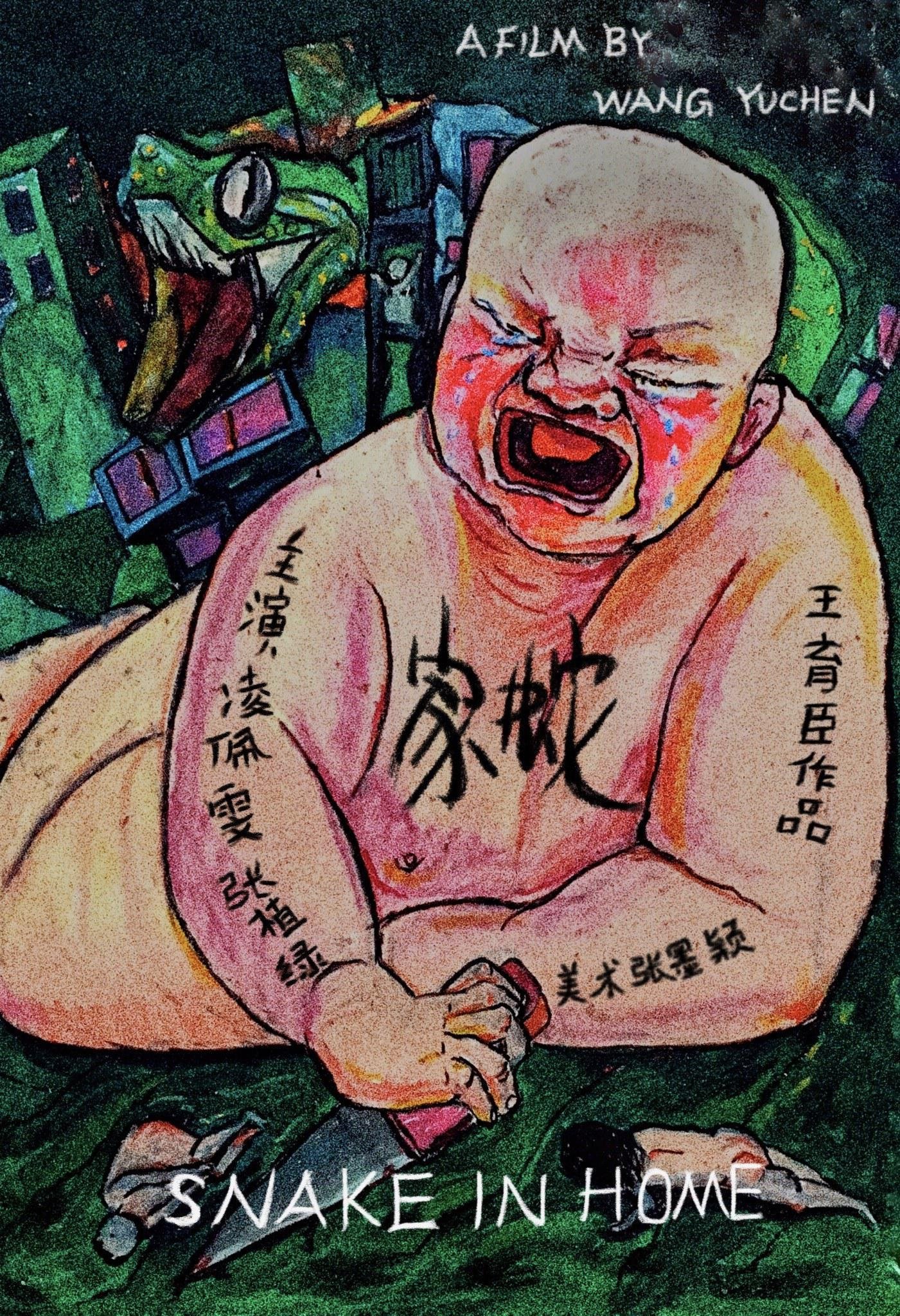 2018-09-14The C-list TV actor Jonnie Zhang decides to change career as an estate agent. While preparing for the interview, he hires a cleaner to tidy up his long non-visited mansion. A cleaner receives a task to a vacant house, and she decides to stay over night realizing that the bus service has been suspended. Out of every clue hidden in the house, she fantasizes its whole family and secrets, along with her own previous life she comes across.
2018-09-14The C-list TV actor Jonnie Zhang decides to change career as an estate agent. While preparing for the interview, he hires a cleaner to tidy up his long non-visited mansion. A cleaner receives a task to a vacant house, and she decides to stay over night realizing that the bus service has been suspended. Out of every clue hidden in the house, she fantasizes its whole family and secrets, along with her own previous life she comes across.
